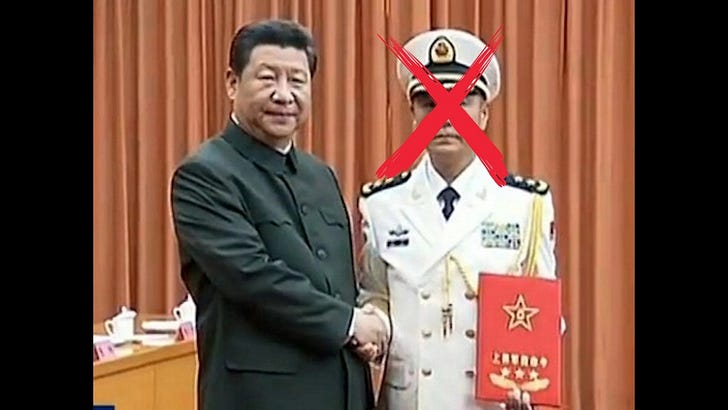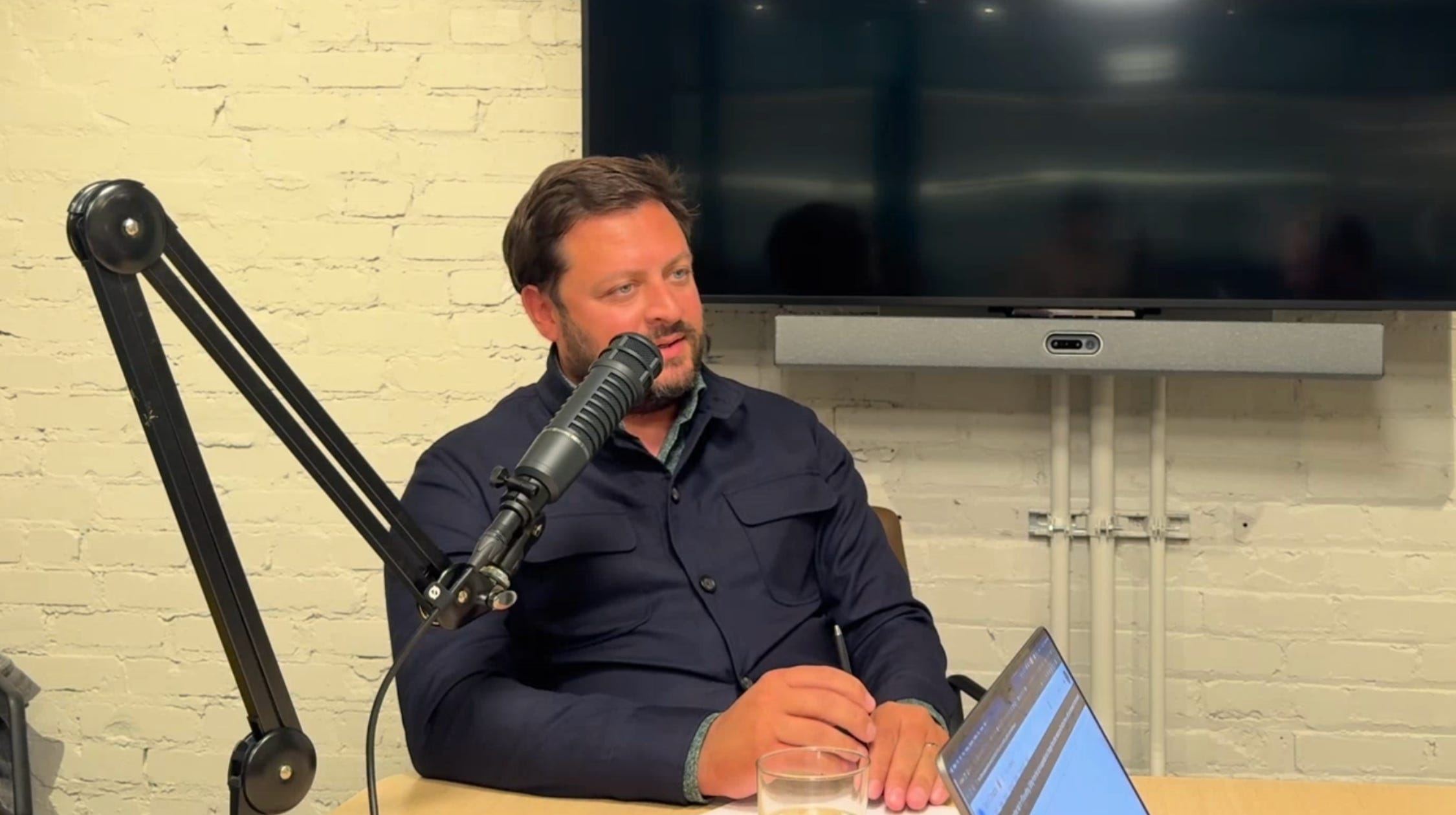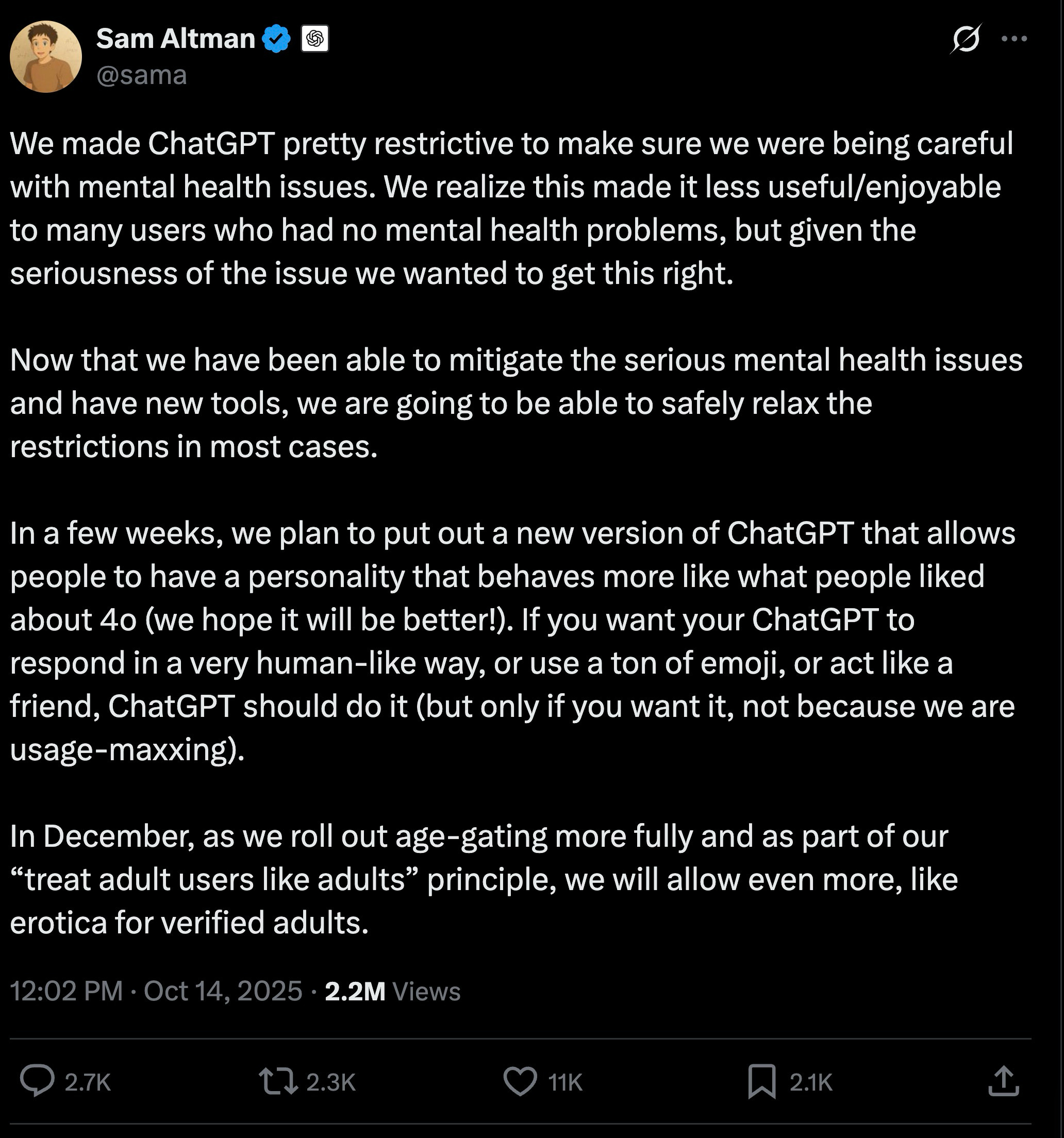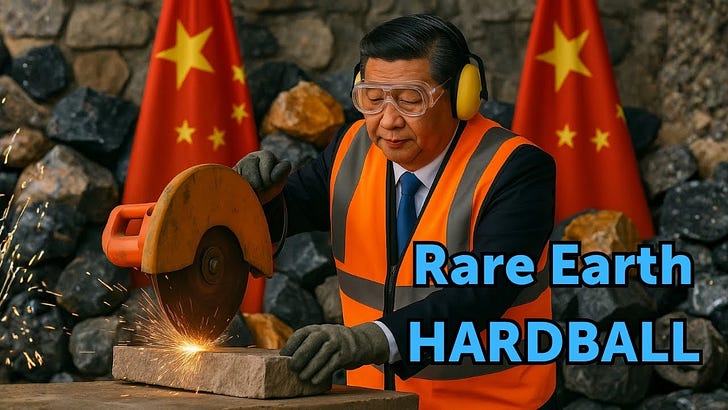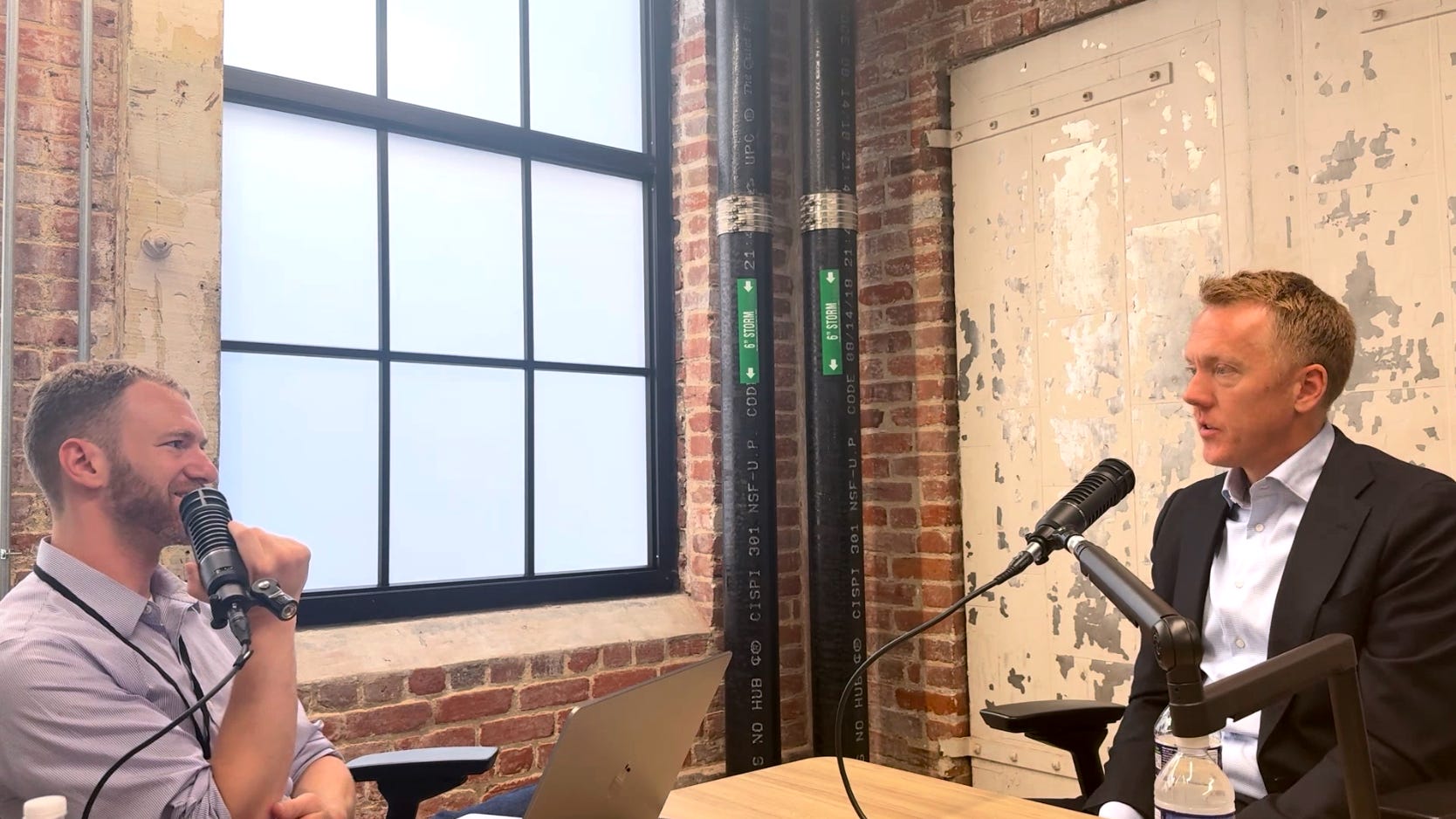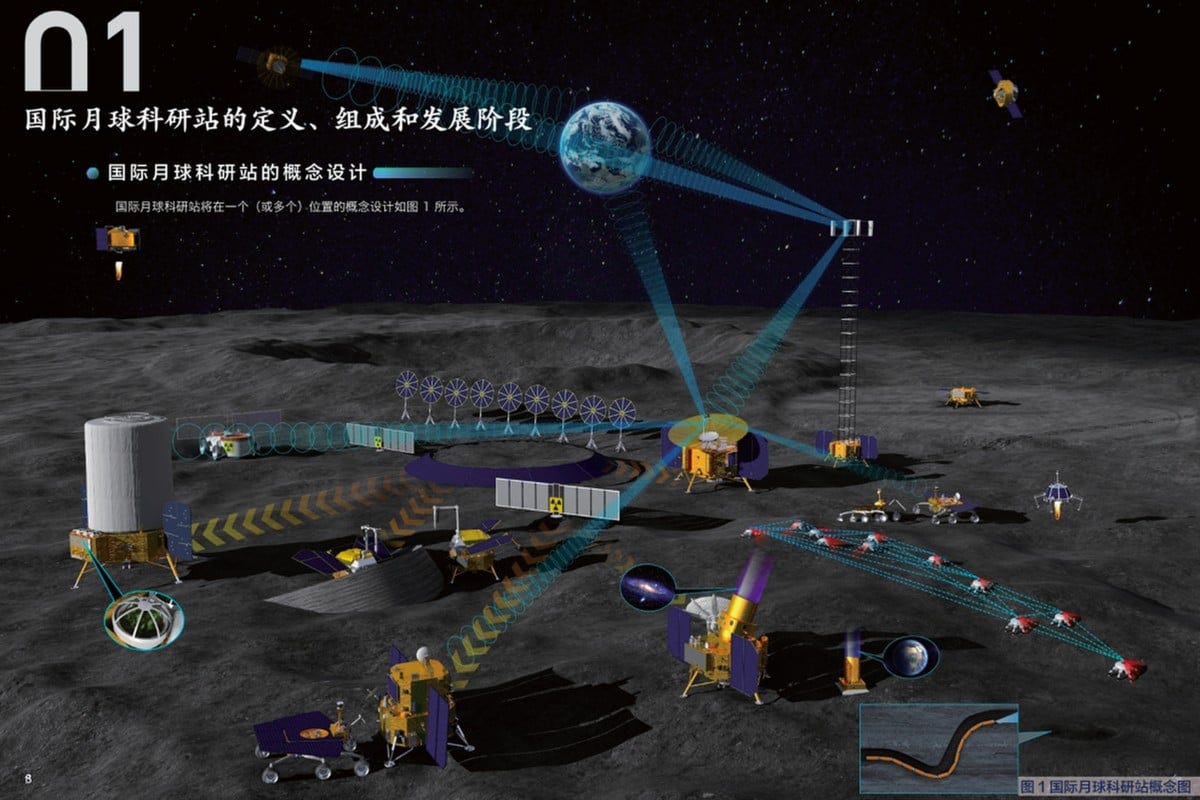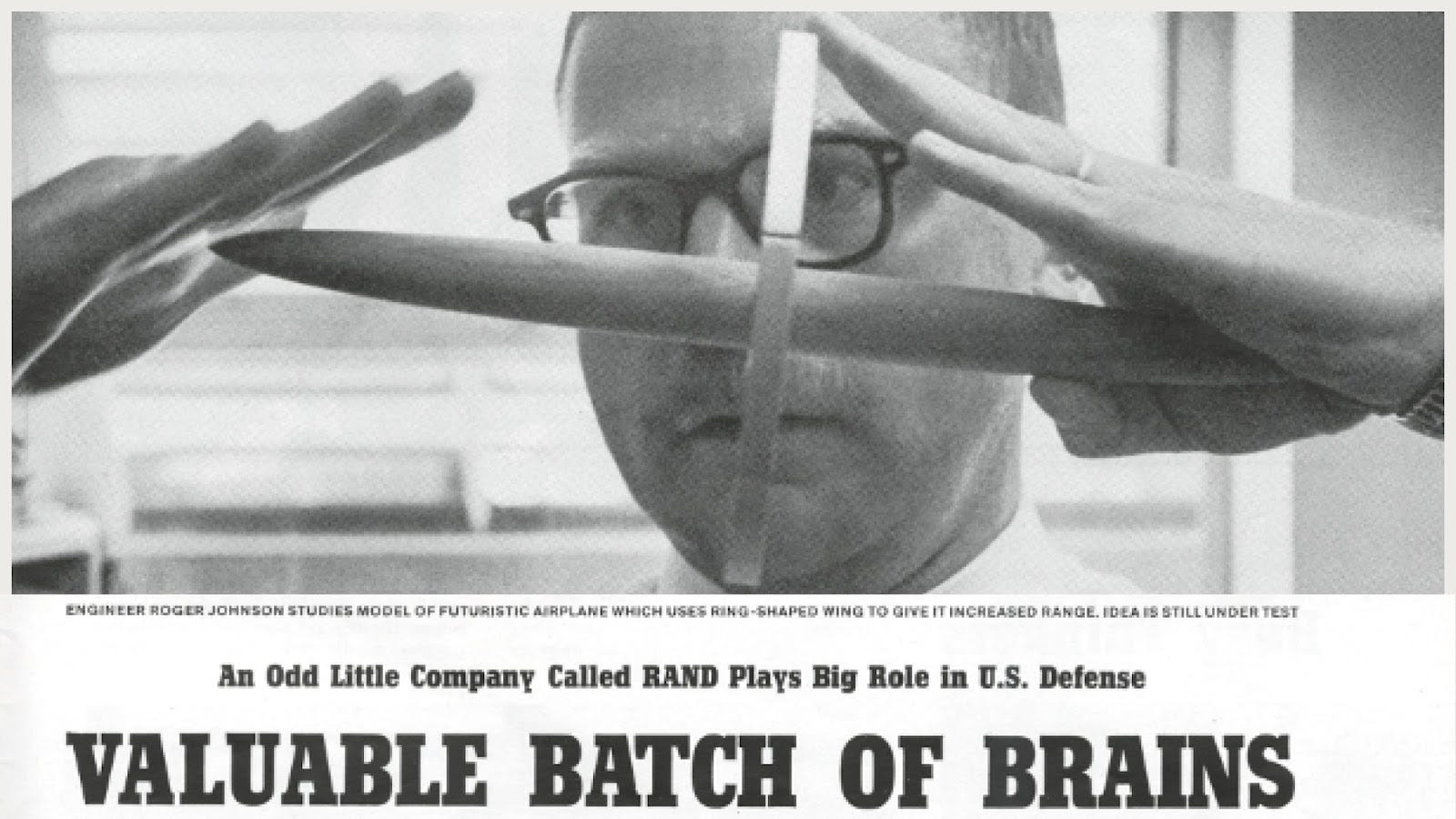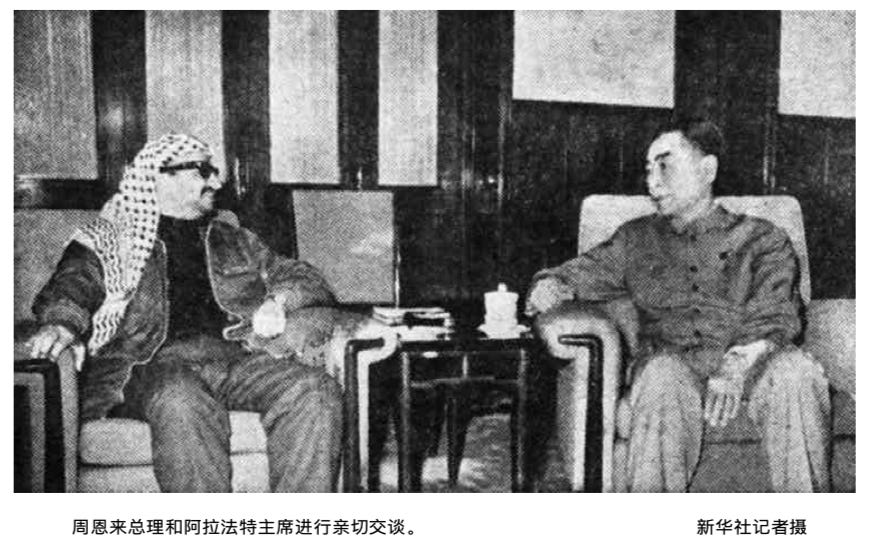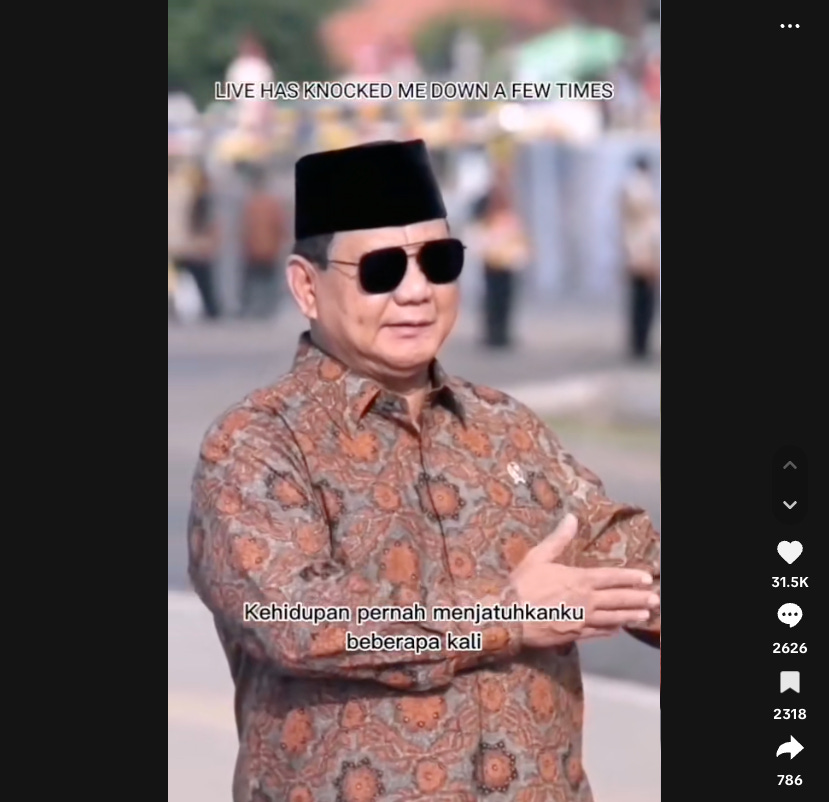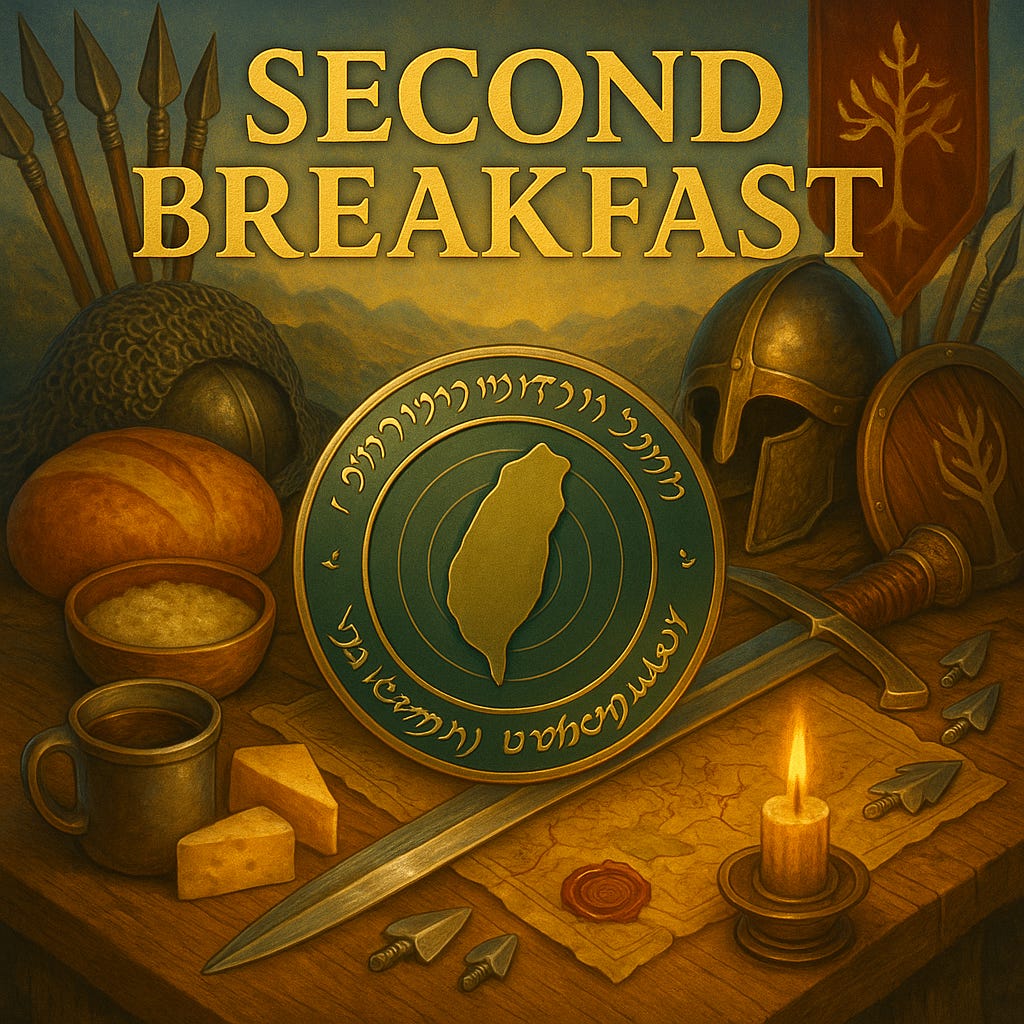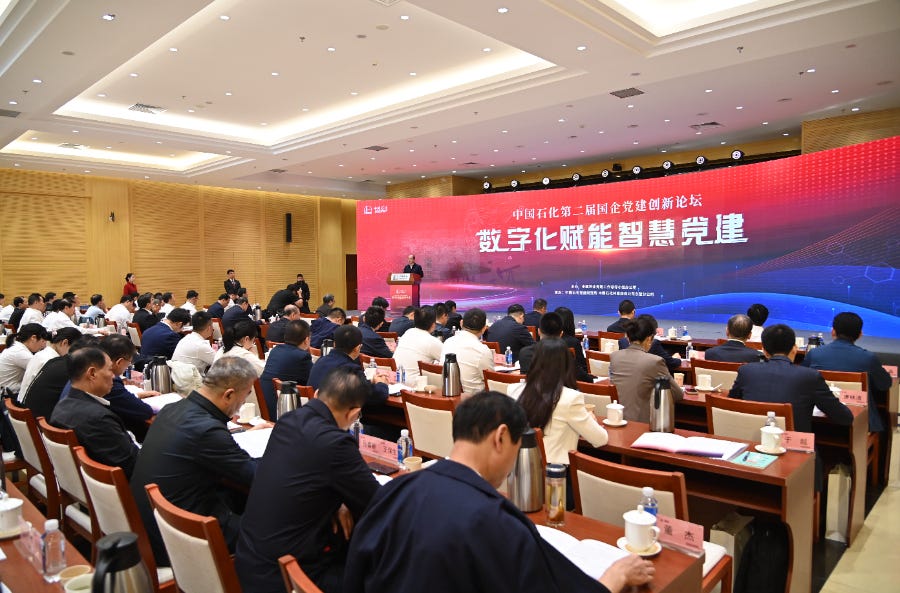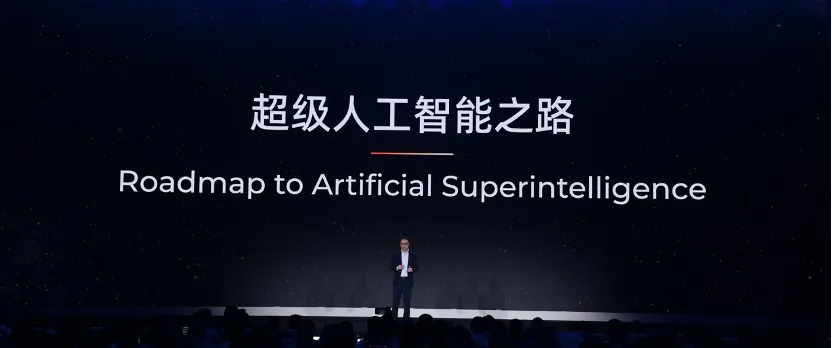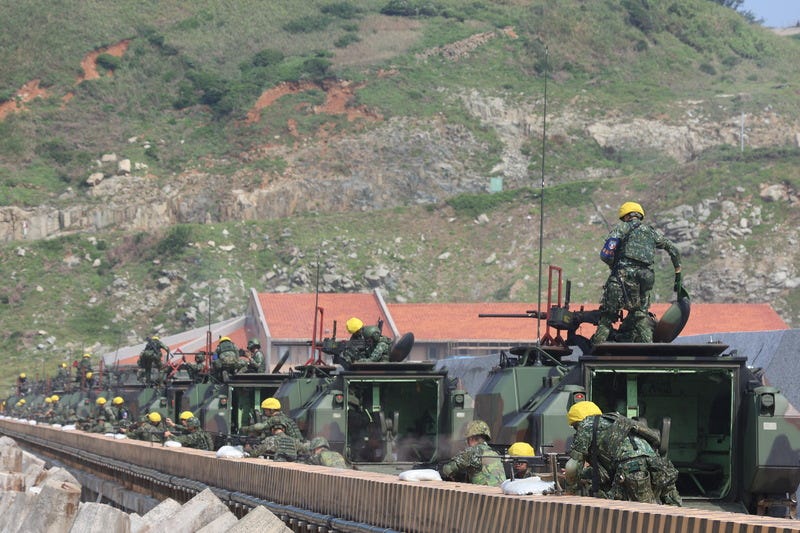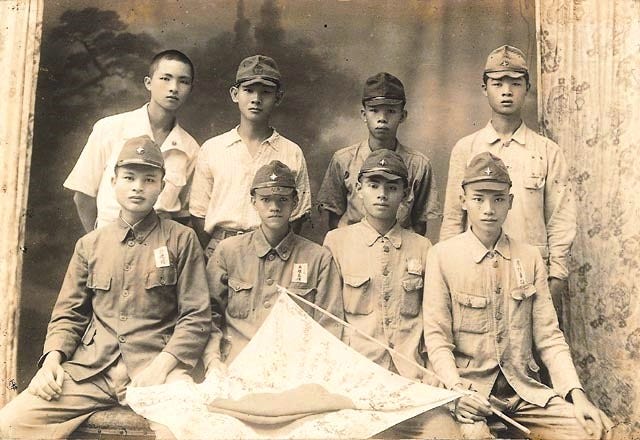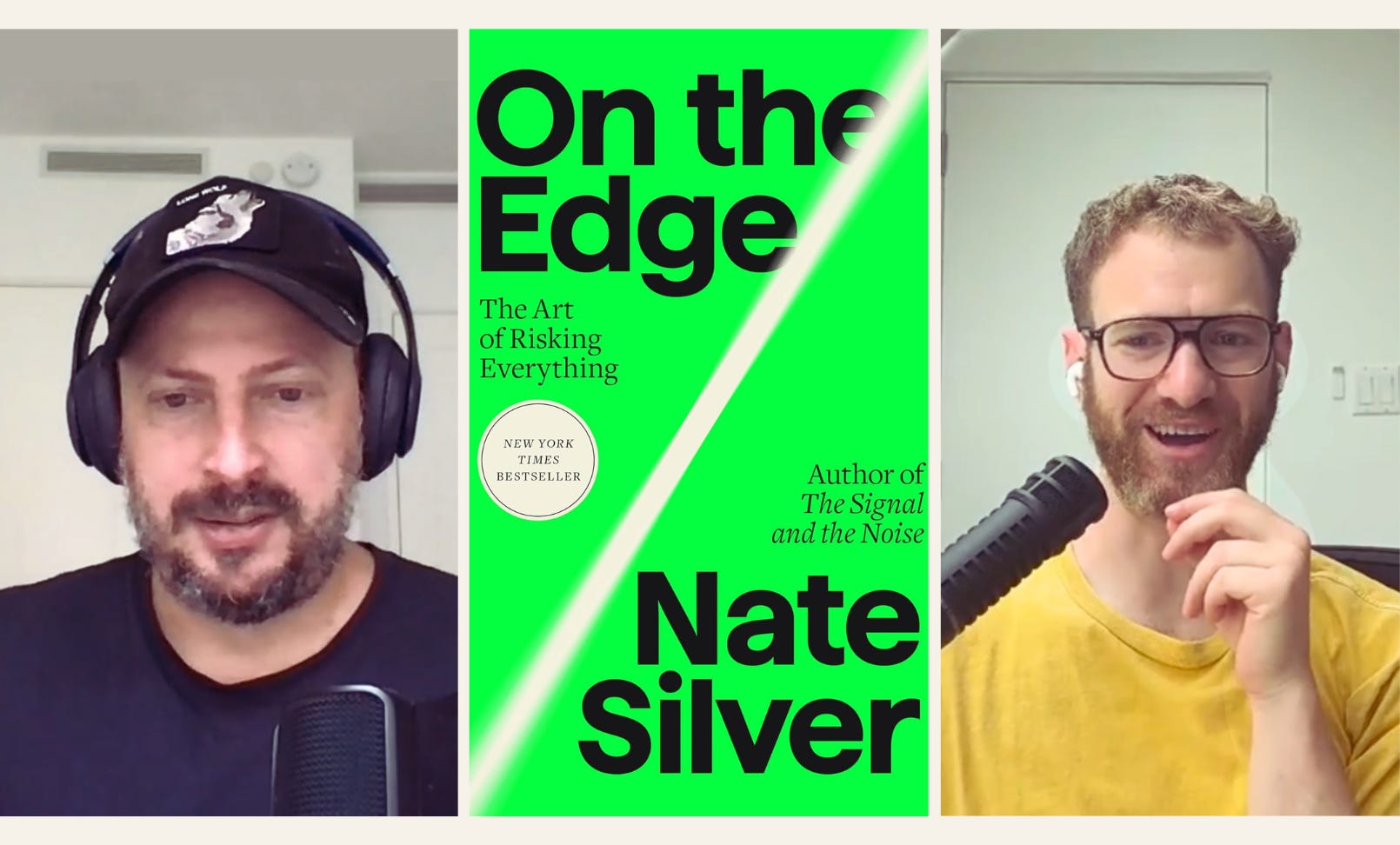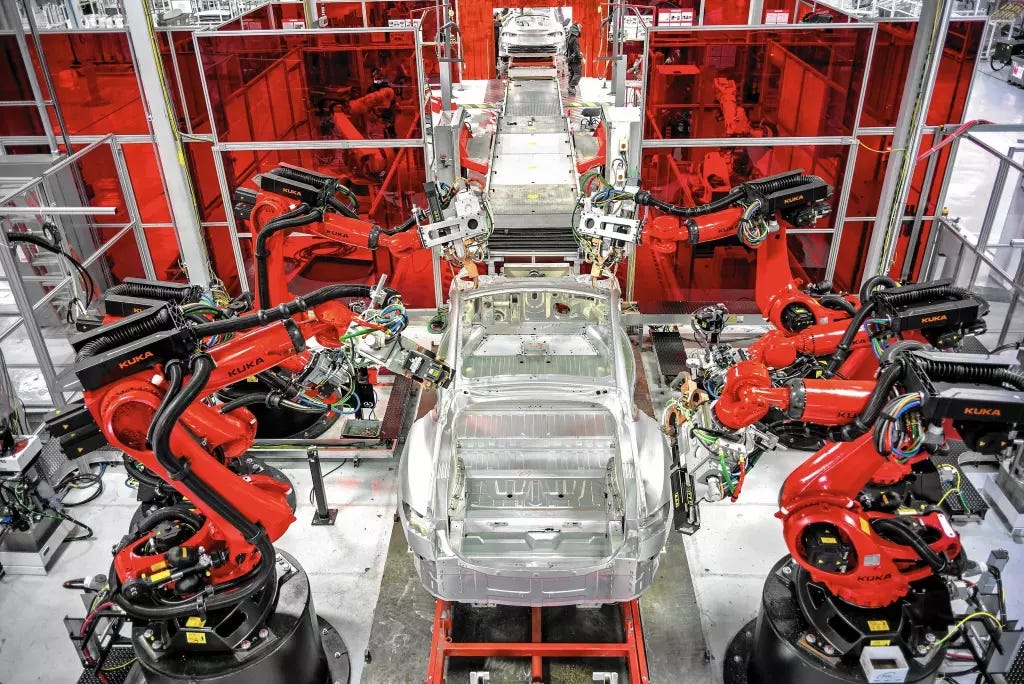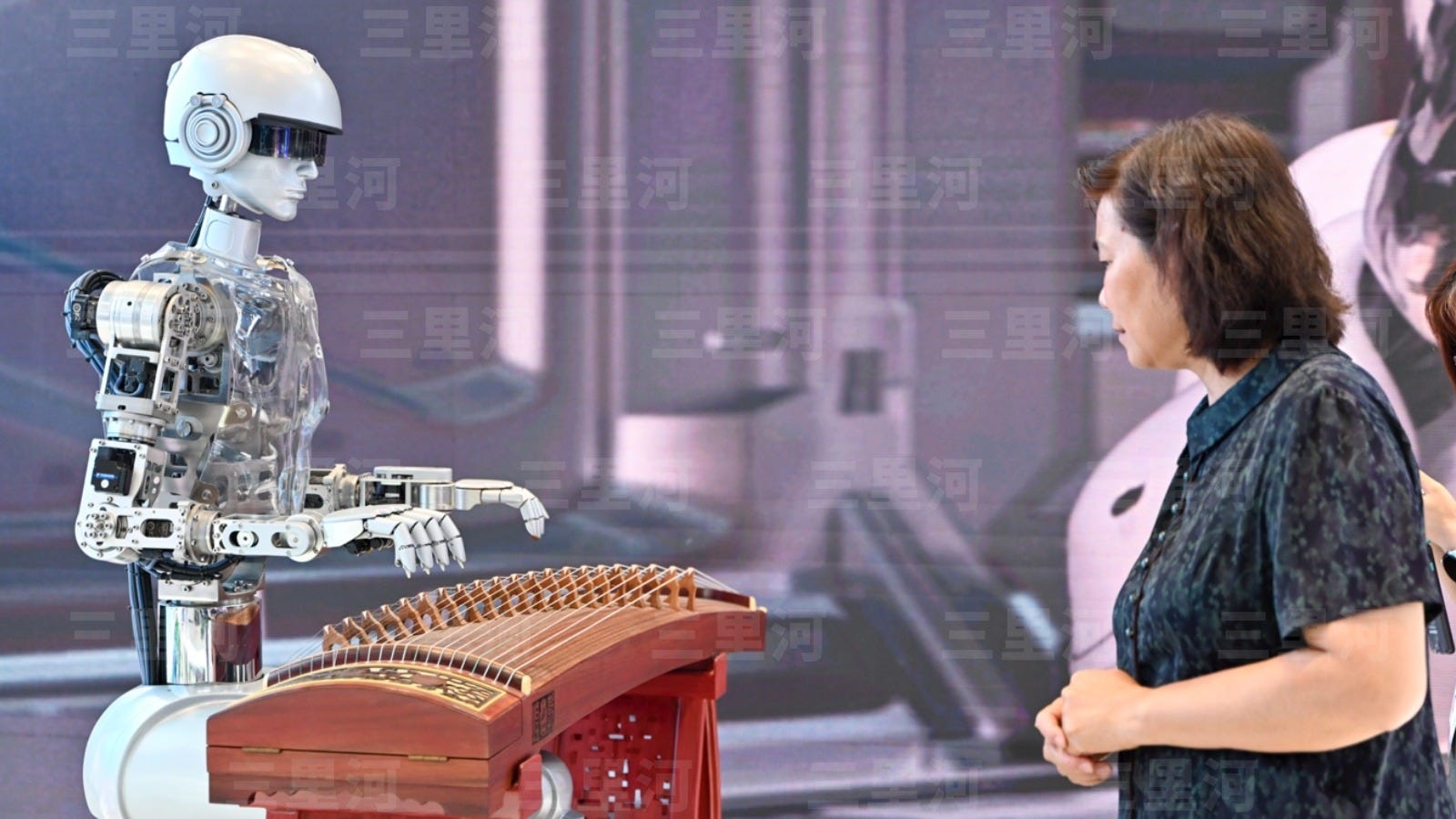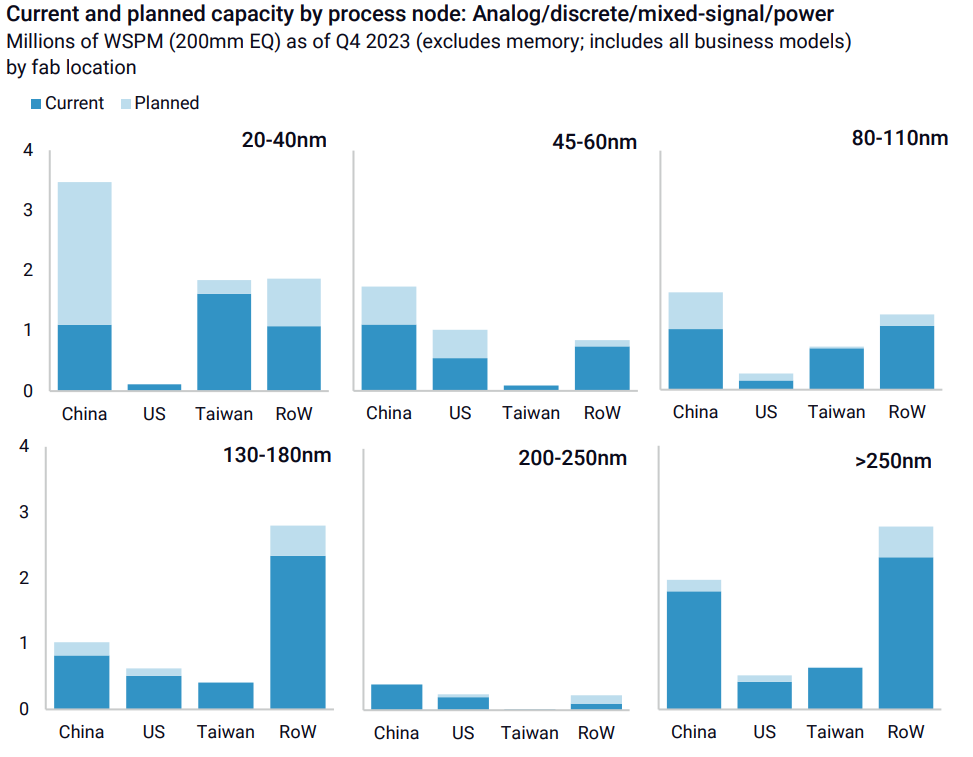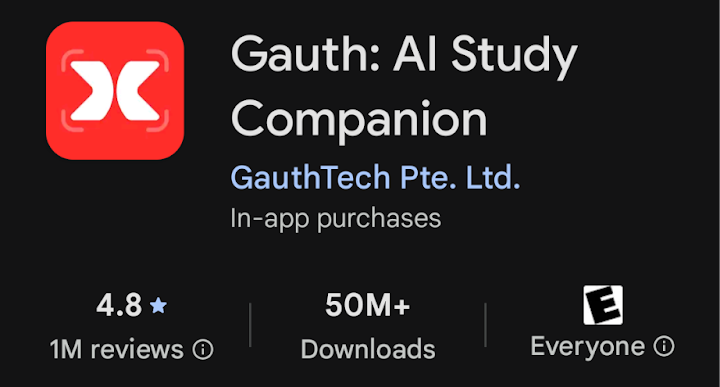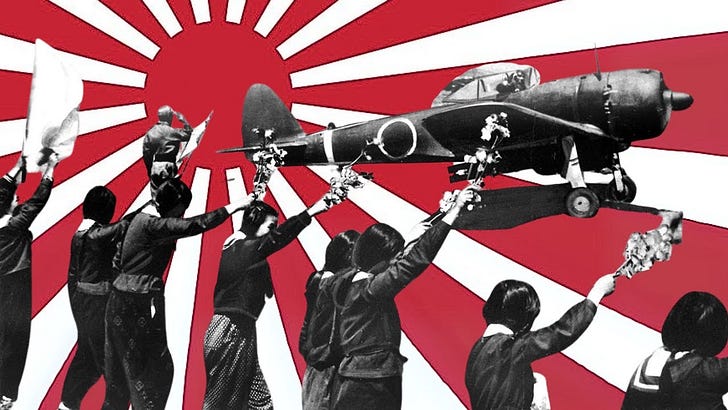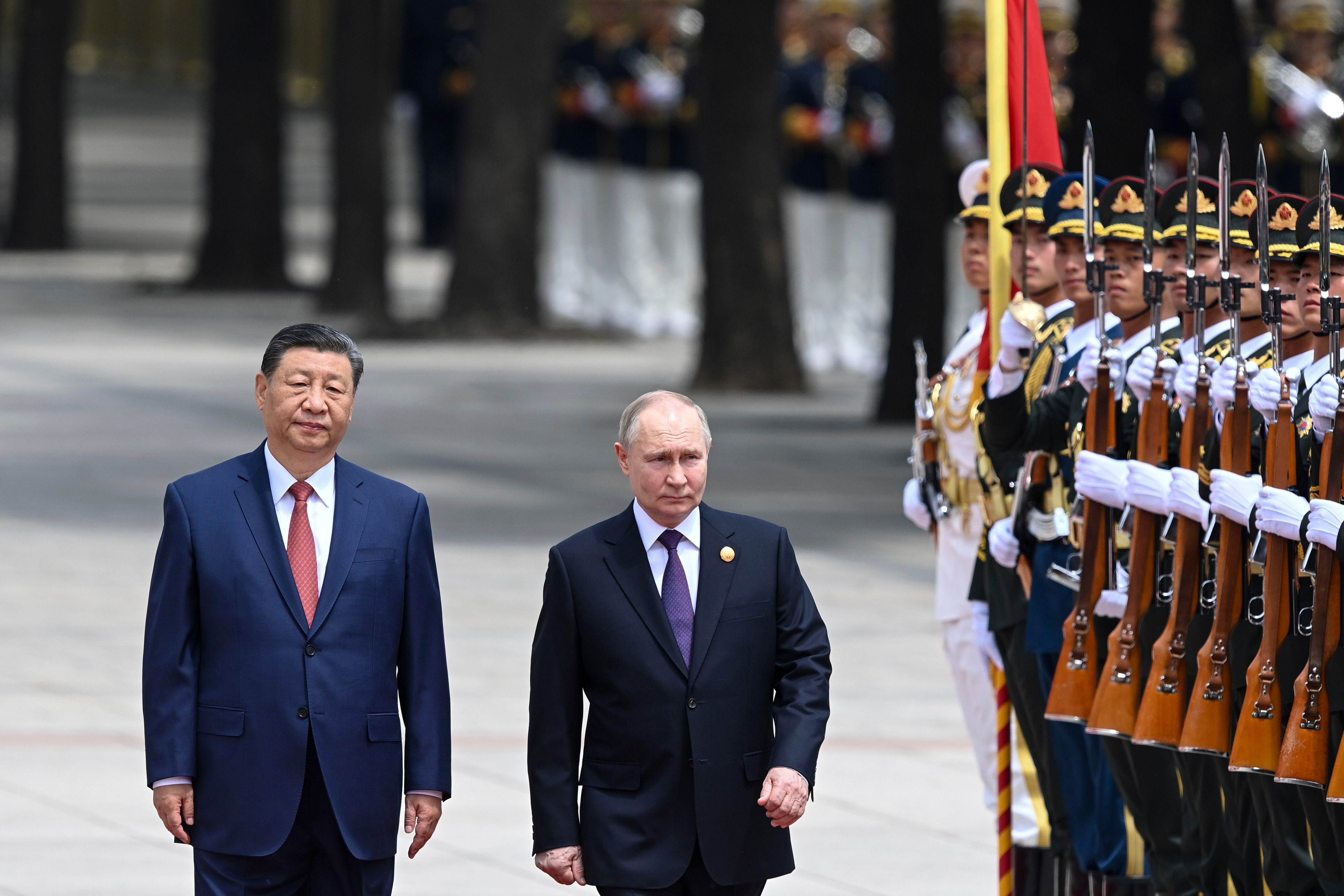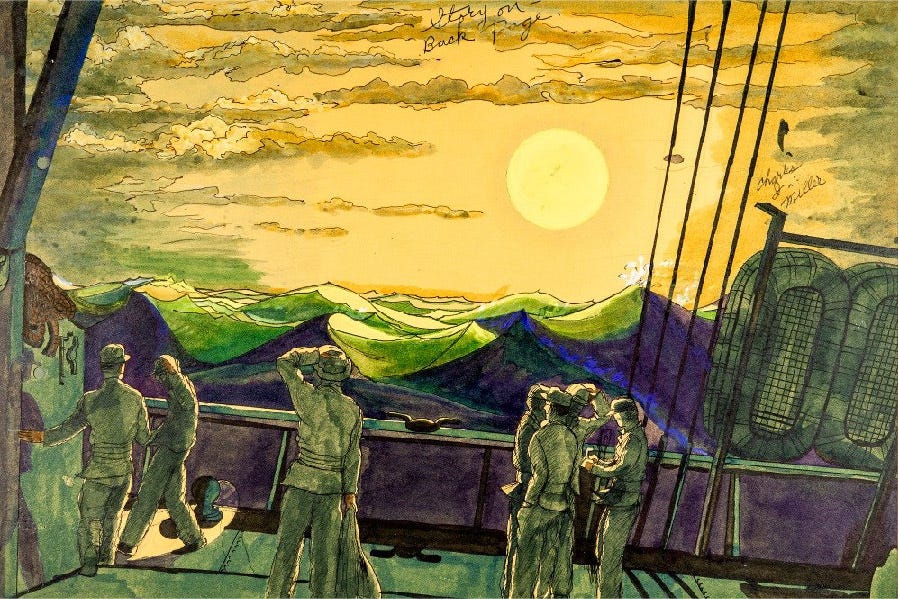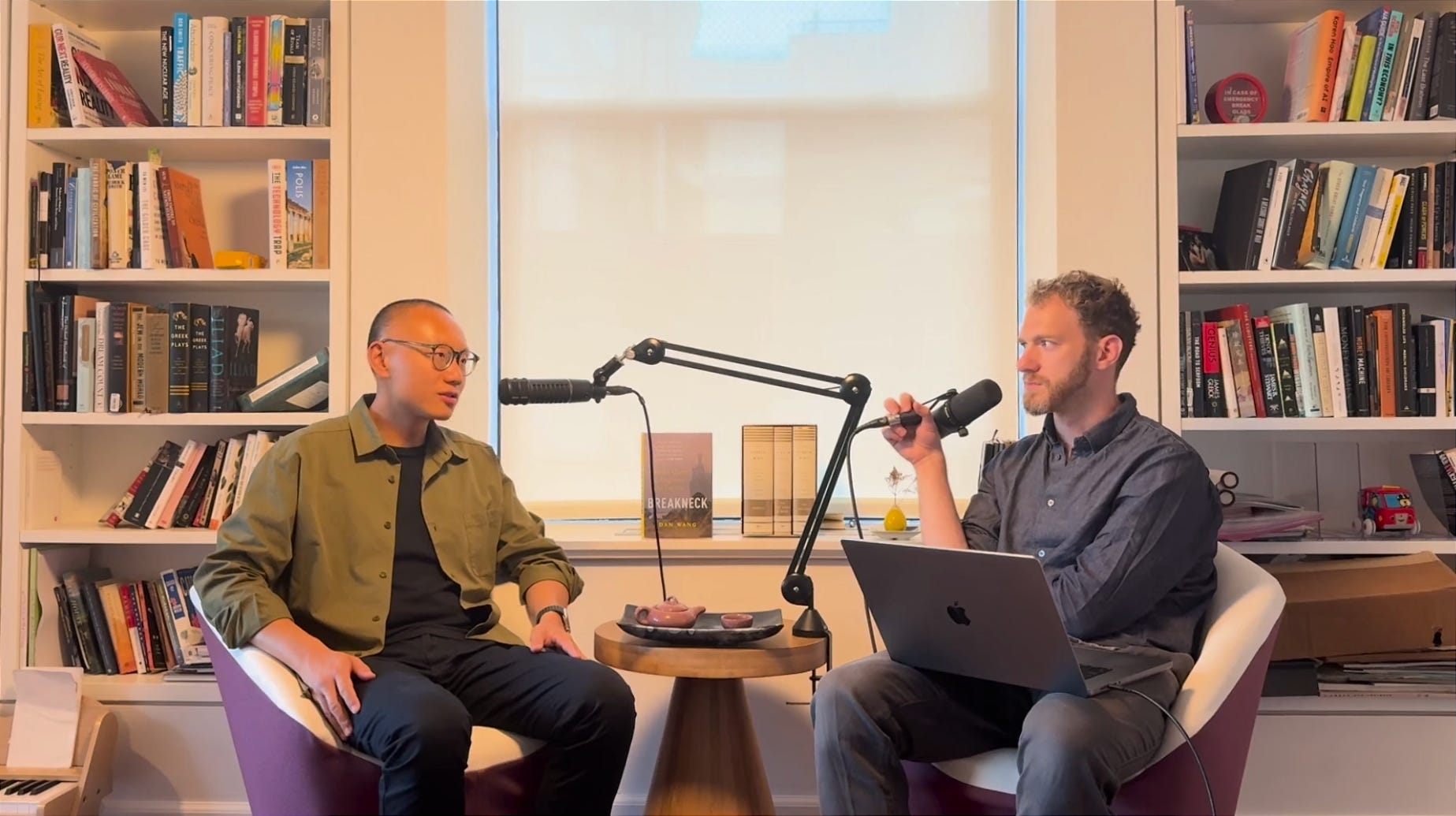PLA Purges
Jon Czin spent years as a top China analyst at the CIA, served as China Director on Biden’s National Security Council, and now works at the Brookings Institution. We discuss what Xi’s fourth-term means for China’s top leadership and military, Taiwan, and the US. We cover:
How Xi’s mafioso-style “decapitation strategy” has kept the PLA in line and why he’s purged more generals than Mao.
Cognitive decline and how end-of-life thinking might be shaping Xi’s succession plans and Taiwan strategy.
Tariffs, rare earths, and China’s appetite for pain vs. America’s.
Beijing’s parochialism and its limits in the Russo-Ukrainian conflict.
What intelligence work on China actually looks like and whether or not Xi’s era is duller than previous generations.
Plus: who might succeed Xi, comparing the Politburo Standing Committee to a frat house, and why chips and TSMC matter much less in Xi’s Taiwan calculus than most think.
Listen now on your favorite podcast app or on YouTube.
Killing the Monkeys to Scare the Chickens (杀猴儆鸡)
Jordan Schneider: Let’s start with the PLA. You have this remarkable line in one of your pieces that Xi has now purged more members of the Central Military Commission than Mao ever did. What are we to make of this?
Jon Czin: Yeah, it’s a little bit of – to use George W. Bush’s term – fuzzy math. It depends on how you count, and we spent a lot of time looking at this. But he’s on pace right now to have numbers that are comparable. Half of the uniformed members of the PLA have been removed or are missing.
Every summer we get this germination of rumors about Xi’s health or the possibility of a coup, but it felt even more intense this summer, in part because there were so many purges in the PLA. Some people saw that as a potential sign of weakness. Some argued that Xi was somehow losing his grip on the military.
But as we make clear in the piece, I’m skeptical of that argument. From practically day one of Xi’s tenure in office, he has been laser-focused on ensuring that the PLA is under his thumb. The anti-corruption campaign has been an important tool – there are genuine reasons he wants to pursue anti-corruption, but there’s an important instrumental purpose. It’s the key lever of power, and it’s been very clear from the outset that he wants to subordinate them to himself.
The second aspect that I added in a separate piece is that it’s also a question of who’s been purged from the PLA so far. My very rough heuristic for understanding the people in Xi’s network is that it’s a two-tiered structure. If Xi is the center of his own political solar system, there are two echelons to it. There are the people who are inside the asteroid belt – most of the Politburo Standing Committee. On the military side, I’d include people like Zhang Youxia (张又侠), where it’s not just that they’ve crossed paths in their careers. There’s an affinity that goes all the way back to their fathers, who both served in the Fourth Field Army in China’s Civil War together. You see that in Joseph Torigian’s excellent biography of Xi Zhongxun.
For others who’ve been removed, like Li Shangfu (李尚福), the former Defense Minister, or He Weidong (何卫东)), there might be some personal nexus – maybe they crossed paths. There’s this school of thought that if you were in the 31st Group Army in what used to be the Nanjing Military Region and you crossed paths with Xi, that could accelerate your career. But from my perspective, these guys are disposable. Xi can make them and he can break them. His ability to do that only enhances his authority rather than diminishes it.

Jordan Schneider: Generals being disposable was not really a thing for most of Chinese history. Generals had a ton of staying power in Mao’s China. But fascinatingly, instead of doing the pussyfooting around with purges in the PLA that you saw post-Mao, as you very colorfully point out, he went after the monkeys instead of the chickens in his first few years. How does that reform push relate to his broader priorities? And why are we still seeing this 15 years later?
Jon Czin: There are several reasons. When Xi got back to Beijing– keep in mind, it was the first time he was back in Beijing since serving as mìshū (秘书) (secretary) for Minister of National Defense Geng Biao (耿飚) back in the early ’80s – he was frankly appalled by the extent of corruption inside the PLA. The Arab Spring only accentuated that anxiety that corruption was rife. The Xu Caihou (徐才厚) case was all about pay-for-promotion. You can’t build a competent organization if people are getting promoted because they’re greasing palms. That’s a very real concern for him.
Part of Xi’s heritage as a princeling is that he understands how important and central the PLA is to political power. It’s the opposite of the approach previous Chinese leaders took, especially in the post-Deng era, where the military, because of its insularity, was the last place they were able to shore up their political position. Xi said, “This is going to be the place that I start, because if I can figure this out – it’s high risk, but high reward – I will dominate the system because I will have subordinated the PLA to my will.”
Another reason that’s less instrumental and more about policy is that the PLA reforms we saw in that 2015-2016 period were really a centerpiece of Xi’s reform agenda. Especially in the post-Mao era, we tend to see economic reforms as the locus where senior leaders want to focus their political firepower. But for Xi, it was really those military reforms. The system was overdue for a correction. They had a very antiquated command structure and it only became more cumbersome over time. It’s about getting it under his thumb, but there’s also a real substantive policy reason why he wanted to do it. There’s also a compounding effect, because the fact he was able to shake up the high command and streamline it only further enhanced his authority and power over it.
Jordan Schneider: Once you’re the king, you can mess with these poor little nobles all you want, because at the end of the day, it’s your kingdom. Being able to establish that as early as he did seems more reflective of confidence than worry about an internal coup.
Jon Czin: Exactly. By going after Xu Caihou and Guo Boxiong (郭伯雄), the guys who would have signed off on every general officer promotion – it’s very risky. To use the mafia analogy, it’s like going after made men and living to tell about it. It’s a decapitation move. You’re going to cut off the head of the network instead of the usual approach of nibbling around the edges and going after people’s pawns or protégés on this political chessboard. By doing that, you send a powerful signal to everybody else in the PLA to be on notice, because they all would have owed their promotions at some level to Xu Caihou, even if they didn’t have a direct nexus with him. Just by doing that and doing it with impunity, instantly people are terrified and Xi gets a lot of wasta inside the system.
Jordan Schneider: I want to come back to 2011-2013. Are you more scared of the Arab Spring – remembering that the PLA did not jump to attention in 1989? Or are you more scared of generals not liking the way you’re treating them and their subordinates and their bureaucracies, and being worried about an internal uprising or coup? It’s clear that Xi chose Route A instead of Route B. To what extent do you think that was a choice that was baked in or something from his personal background or just a sign of the times in that moment? Maybe it comes back to a broader question: to what extent was a centralizing leader in 2012 something that the Party was inevitably going to produce versus one who was going to continue to play by the Deng-era rules?
Jon Czin: Yeah, this is the theory – if Xi didn’t exist, he would have to be invented. I tend to think that Xi had an opportunity. There was a sense of malaise in the Party at the end of the Hu Jintao era. The leadership was adrift, and people, even inside the system, were calling this a lost decade and saying that Hu Jintao and Wen Jiabao were basically living off borrowed time and the vigor and reform efforts of Zhu Rongji (朱镕基) and Jiang Zemin from the previous administration.
From my perspective, though, to pursue that line of thought is to deny Xi his unique agency. There was an opening. There was an appetite for greater central control. There was a sense of drift in the Party, but Xi took a crowbar to that opening. The people who backed him in the system didn’t necessarily think that they were going to be the ones who ended up getting hit in the head with the crowbar in some instances. That was always going to be his impulse.
Part of the impulse inside the system is that power in that system tends to be monistic anyway. There’s a tendency for it to centralize. Alice Miller, citing Aristotle, has a great line about this in a very old issue of China Leadership Monitor from 20 years ago, where she talks about how oligarchies are subject to both centripetal forces and centrifugal forces. The natural correction when you start to see this drift, like we saw in the Hu Jintao era, is for the centripetal forces to kick back in and try to say, “No, we need to get our act together. We need a leader who can pull us together.”
Xi was very adept in how he did this. This has always been my mental model of how he operates and the way he was able to centralize control. Because he’s a princeling and he has these networks throughout the system that he was born with, the way Xi approaches the political networks inside the CCP is like – if an electrician comes to my house and I took back the wall and started messing around with the wires, or if Hu Jintao started to do that, even though he’s an engineer, we’d probably get electrocuted. But Xi knows which wires he can touch and which ones he can cut safely and which ones are going to zap him.
Jordan Schneider: Were there ever any wires that could have zapped him at any point?
Jon Czin: Going after people like Zhou Yongkang (周永康), Xu Caihou, Guo Boxiong – that was dangerous. It looks obvious in retrospect, but at the time, if you’re Xi Jinping and you’re a brand new leader just getting up to speed, this is really dangerous. There could have been some meaningful backlash. Part of the art of what he did – maybe it made it a little bit easier by going after elders and people who had already retired from the system, and their links were somewhat attenuated at that point. It also made it more gratuitous. I remember some people saying at the time, “Well, why would he go after these people? They’re already retired. Why not just neutralize them and let them die a quiet death or live a quiet retirement?” But you’re going after the guys in the system with the guns. It’s as simple as that. That’s going to be challenging in that system.

Jordan Schneider: The other thing that he did so smartly was to do it right away. It’s like the idea of the President’s first hundred days. You can undermine or wait out a guy who’s got a year left, two years left, but eight or nine years? For everyone else in the system who’s seeing this battle – who are you going to side with? What’s the better bet? If you don’t have time on your side and you see this actor who’s moving with real agency, who’s young and vigorous, who just beat out other competitors. We already saw Bo get put aside. His ability to push rivals into jails is something that has been demonstrated once in a very spectacular way. For him not to allow anyone to start complaining or build up a rap sheet against him, for the first moves to be these anti-corruption moves – that probably really helped.
Jon Czin: That’s right. It was a blitzkrieg – speed was definitely one of his big advantages. By going after the retired guys, if you’re a mid-ranking officer or even a relatively senior officer, which horse are you going to back? The guy who just retired or the guy who’s going to be making all the decisions for the next 10 – now we’re going into 20 – years? That changes everybody else’s calculus throughout the system.
Red and Expert in the PLA
Jordan Schneider: Let’s talk about the dynamics of red versus expert in the PLA, what Xi saw, and how he’s tried to shape it over the past 10 years.
Jon Czin: He’s definitely put more emphasis explicitly on the red part of this. What’s really interesting is that there’s this casual notion that the PLA over the last 20 years has been professionalizing. I talk about this in the piece, but that’s not quite right. There was maybe an incipient tendency in that direction during the Hu Jintao era, that because they were becoming more proficient, they were modernizing. But from the Party’s perspective, they don’t want a professional PLA in the sense that Samuel Huntington would have called it – apolitical and politically neutral.
You can see that on the pages of Jiefangjun Bao (解放军报 PLA Daily) on a regular basis where Xi excoriates this idea and reminds them: “You are the armed wing of the Chinese Communist Party. That is mission number one, two, and three.” You could even see that earlier in his tenure. You would see signs of a backlash against the idea of having a state military. We wouldn’t see the debate or the advocates saying we need a state military, a national military rather than a Party one, but we would see the backlash – which suggests to me there was some debate percolating at that point that Xi very much wants to squash.
He wants them to be red. That is paramount to him. But he hasn’t gone light on the expertise necessarily. It’s not like the guys that he’s elevated to these positions lack the competence or the wherewithal, even if they’ve gotten helicopter promotions. One of the things that’s very much on Xi’s mind is the fact that the PLA hasn’t been to war since its war with Vietnam in the late ’70s and then maybe some skirmishes throughout the ’80s. It hasn’t seen blood, it hasn’t been shot at in anger. Given how small the pool is of people with that experience, there are people in the high command who were involved in that fighting, and Xi’s put a premium on that.
Jordan Schneider: Aren’t there two guys who were majors in 1979 and who’ve stuck around past age 67?
Jon Czin: Yeah, that’s right. Xi likes that. He wants somebody who’s been shot at, who has seen blood in the field. Now that I think about it, it comports with Joseph Torigian’s biography of Xi’s father and what it means for Xi’s own mindset. Xi likes people who suffered a little bit, who’ve been hardened, who’ve been tempered. He doesn’t want somebody who’s only known ease and glory and prosperity.
Jordan Schneider: Talk about the idea of a political versus apolitical military.
Jon Czin: There is a real difference, and it can feel a little abstract sometimes. In our own system, for instance, we have a long tradition of having an apolitical military – one that doesn’t insert itself into politics. In addition to that long-standing culture, you also have various layers of mechanisms to ensure civilian control of the military. You have civilians who populate the Office of the Secretary of Defense who have to sign off on things. We obviously have a civilian Secretary of Defense. China has none of that. That’s a really stark difference. They don’t have the same kind of checks and acculturation to ensure political neutrality and to ensure that the Party doesn’t get involved in politics.
But it’s also not part of their self-conception. Part of the PLA’s conception in its own mind is that they are the ones that conquered China for the Chinese Communist Party. Especially for the ground forces, that is their history and that is their legacy. One pithier way to bring this home for listeners: imagine this would almost be like if there were an armed wing of the Republican Party or the Democratic Party, and they come to power and that’s who becomes the armed forces. They are loyal to them and their job is to keep them in power. That is the PLA’s original raison d’être. That is an important facet that is core to its being.
Jordan Schneider: The argument you’re making, which is interesting, is that in the early years when Xi showed up to Beijing, he didn’t necessarily see that red energy, but saw an organization which was entirely a self-contained institution that was professionalizing. It was more like 1870s Germany than this bleeding red mechanism.
Jon Czin: That’s right. They were more preoccupied with operational proficiency, building out their navy, maybe even acquiring overseas military access – the big flashy stuff – rather than with long sessions of indoctrination in Marxist ideological tenets. It’s important to keep in mind that in any system, even in a highly professional one, by design the military is a relatively insular institution. There’s a reason people in Washington call the Pentagon the puzzle palace. It’s very technologically advanced, it’s got its own culture, its own intricate layers of bureaucracy and personal networks. That’s true of any military.
But if you’re talking about the PLA, the only real meaningful bridge from the civilian side of the Party to the military is Xi Jinping himself. You might have some contact or exposure as a provincial official – maybe there are mobilization exercises and you might have some contact – but really that nexus with the PLA, because it’s so politically salient, is so closely guarded. That’s why there are no other civilians on the Central Military Commission. Even when Xi is hanging out with the Central Military Commission or the PLA, he’s in a uniform, he’s not in civilian garb.
Jordan Schneider: I love this line where you say that Xi hauled the entire high command to historic revolutionary sites where Mao institutionalized the Party’s control of the military. You wrote this before the Quantico shenanigans over the past few weeks…
Jon Czin: I originally said “schlep,” but the editors took it out and made me say “hauled.”
Jordan Schneider: This is why you don’t write for Foreign Affairs and you write for ChinaTalk instead.
Xi’s Taiwan Playbook
Jordan Schneider: Let’s talk Taiwan. You make this argument that Xi’s had a lot of success in power consolidation, corruption fighting, and PLA modernization. The economy? TBD. But also, does he really care all that much? It seems like second or third priority for him. But with Taiwan, which is clearly something he cares about deeply, we haven’t seen much momentum towards a solution that he would be proud to have written in the history books next to his time as party chairman. Let’s reflect on the past decade-plus of Xi Taiwan policy and how it could potentially evolve into a fourth term and a post-2028 election.
Jon Czin: That’s a great point. In my mind, what really stands out is that if you rewind to a decade ago, Xi’s Taiwan policy, following from the Hu Jintao policy, was actually bearing some fruit. The big culminating event would have been 10 years ago when Xi Jinping shook hands with then-Taiwan President Ma Ying-jeou in Singapore. That would have been the first time you had a meeting like that between the head of the CCP and the head of the ROC since the Marshall Mission in 1946 when Mao met with Chiang Kai-shek. For Xi, he loves that kind of historical precedent. But it also ended up being a high-water mark for his Taiwan policy. Of course, he’s had to deal with Tsai Ing-wen and the DPP ever since then, pretty much.

Going into the last election on Taiwan in early 2024, I was worried that Xi and those around him were going to realize, frankly, the intellectual bankruptcy that’s been at the core of their Taiwan policy. What you’ve had over a longer trajectory – initially going back to Hu Jintao – was a softer approach, a very Marxian approach. The line of thinking was that if we change the economic structure, the political superstructure will change. As China’s economic clout grows and economic ties with Taiwan become closer, Taiwan’s just eventually going to come into China’s orbit. It’s going to fall like an apple off a tree into their growing gravity.
After the election of Tsai, you see a clear pivot from Xi towards a more coercive approach. But that hasn’t really been working. What they’ve done in Hong Kong, as everyone knows, has only further alienated Taiwan. It seems like politically the island has actually only gotten further away from the mainland. Where does that leave Xi and his strategy?
During the election in 2024, there was probably a real alignment between China’s outside voice and inside voice in the sense that they were relieved that the KMT won in the LY (Legislative Yuan). They were saying publicly afterwards, “The fact that the KMT has won in the LY election shows that most people don’t support the DPP and its pro-independence policies, yada yada.” But that’s also how they soothed themselves that night, saying, “It’s okay, our policy is still viable, we don’t need to do a fundamental rethink yet at this point.” It keeps hope alive.
Frankly, the failure of the DPP’s recall campaign this summer probably gives Beijing a bit more consolation – maybe they don’t have to really think about this. But what if the DPP did have a full sweep in 2024? Where does that leave Xi? Does he start to get antsy? That’s part of what I worry about, and I argue this in the China Leadership Monitor piece: what happens when Xi gets to his fourth term and he’s staring down the barrel of 80? If the DPP is still in power, does he have to have a deeper rethink?
He’s shown a proclivity throughout his career that when he gets frustrated, he does something to try to shake up the dynamic. As we saw in Hong Kong, he’s not just content to let things stay on cruise control if he doesn’t think it’s going in the right direction. That doesn’t necessarily mean he’s going to all of a sudden have an appetite for the million man swim after 2028. But you could see him giving a long and hard look at some of those more coercive options that people talk about in Washington.
Jordan Schneider: Yeah. The idea of him all of a sudden, overnight turning into Putin seems a little far-fetched with the track record that we have of over a decade of him not just straight up invading countries.
Jon Czin: That’s right. In some ways, Putin is obviously an important partner for him, but he’s also a useful foil for him. Xi has a much greater appetite for risk than others in the Chinese system, e.g., a Hu Jintao or Jiang Zemin. But that’s, in the big scheme of things, that’s a low bar to clear. He doesn’t have that same penchant for outright violence and risk-taking that Putin has. He’s much cagier and much more methodical in how he goes about taking risks. It’s not that he doesn’t take them, but they’re much more calculated risks than gambling on the roulette table.
Jordan Schneider: Jon, often in conversations I have, people don’t start with domestic Taiwanese politics or Xi end-of-life thinking, but they start with this idea of the Silicon Shield. Where do you put the availability of access to Taiwanese chips or the broader economic fallout that an escalation could impose in the calculus?
Jon Czin: No pun intended, I would decouple the two. The chips and TSMC actually rank very low on Xi’s priorities when it comes to this. Even though he’s got this techno-industrial fetish, he has enough confidence that China will figure it out over time. If he made the decision to go for Taiwan, he’d scuttle it. He’d do what he needed to take the island, and it wouldn’t factor very high in his considerations.
That’s separate from the broader economic fallout. The kind of cataclysm that could produce is very much on his mind and really gives him real pause. The way I think about it is that if he were to go for some full-scale invasion, he’s basically gambling not just with his legacy, but with everything that the Party has achieved since the death of Mao – all the progress it’s made, all that it’s built up. It could really damage or undo the Party’s legitimacy. He feels like if he’s going to go in, he wants that level of surety because it’s really putting all the chips on the table. He’d rather not do that.
What he’d rather do in the meantime, with a coercive approach, is to demoralize Taiwan over time, keep up the drumbeat of pressure, and hope that it starts to cause the foundations of Taiwan’s polity to crumble over time. He doesn’t necessarily want to go for the blunt force trauma first. That’s the optional last resort, given the costs.
Jordan Schneider: The irony of all of this is that if China evolves in a different direction, this all of a sudden becomes a lot more appetizing. The carrots that have been placed in front of Taiwan since the death of Mao have not been that compelling. The early ’80s was the height of this discussion when we had the most liberal version of domestic China. For it to ever really happen in a happy way, that’s really the development we’re going to have to see. But coercion into this just does not seem like a viable strategy.
Jon Czin: It’s interesting because you make that point about in the early ’80s when this was really a real possibility. Again, Joseph’s biography has been on my mind all year after reading it this summer, because it’s so good. Who would have been the person in the central leadership secretariat with the most experience dealing with Taiwan and the KMT and doing united front work? It was Xi’s old man, Xi Zhongxun.
That gets to another important facet of this. If you poke around in the open source material, it’s not clear who has Xi Jinping’s ear on Taiwan policy. There’s not somebody like a Liu He (刘鹤) you can point to and say, “This guy’s very influential with him.” A lot of that is because, again, he’s a princeling and Xi Zhongxun’s son in particular. He thinks that he’s got his own best handle on this issue because he understands this idea almost genealogically. Who knows how much they ended up discussing it? But if you pair that with his own career trajectory as well...
Jordan Schneider: And Xiamen, right? He dealt with this stuff.
Jon Czin: He dealt with this stuff in Xiamen and Fujian and Zhejiang. He would have been vice governor during the Taiwan crisis in the ’90s. He would have had a front-row seat to this whole dynamic for the previous 30 years. My suspicion about this is that rightly or wrongly, he has a lot of self-assurance on this particular set of issues. That’s why we haven’t seen somebody as his obvious consigliere on this in particular.
Succession Without a Script
Jordan Schneider: Let’s talk cognitive decline. The actuarial tables give us a 3% chance a year of a dramatic stroke or him dying, and that steadily creeps up to 3.2%, 3.5%.
But there’s also: “the guy gets old” and even if he’s still around and can be on for five, six hours a day – we’re already seeing him dialing it back with this Li Qiang dynamic where Xi’s doing less international travel, meeting with less of the Prime Minister of Swaziland, etc. Setting aside a stroke or some very dramatic thing where he’s out of commission, what are the different pathways to think of Chinese politics over the next five or ten years if he’s just slowly losing his edge over time?
Jon Czin: There are the actuarial tables, but as I note in the CLM piece, there’s also just common sense observation. This is a guy who’s now in his 70s. He’s obviously overweight and a smoker – maybe former smoker. He’s been doing this impossible job of governing the world’s largest country for the last dozen or so years. He’s got to be tired. That just takes a toll on him. He’s living in this highly fractious political environment where he’s doing things like purging people on a regular basis. He senses threats even when there might not be any. That is just emotionally exhausting. If you’re living in that environment your whole life, and then you’re the king and you’ve got to deal with this on a daily basis to make sure you’re on your A game, in and of itself…
Jordan Schneider: Maybe it works the other way too. Is this just what gets him out of bed every day? Mao always wanted to be a poet at some level, right? And that’s what he got to do during his repose as emperor starting in the ’60s and ’70s. I mean, Xi lives for this. This is what gets him out of bed every day, I’m sure.
Jon Czin: You’re probably right. It’s like a shark – he’s got to stay in motion. Without the game, he would wither. That’s probably a real possibility for a guy like him. You’re right about Mao too. Mao became a poet, but to everybody’s detriment, because now we’re left with this Delphic model of leadership where people go to him and they’re like, “Okay, I talked to the boss, but what does he really want us to do?”
That becomes one of the dangers as Xi ages. People talk about the succession question, but this is going to be one of the real conundrums. Number one, does he name a successor? I don’t think he will until he gets into his fourth term. But then the perennial challenge is always, you’ve got to build your successor up enough that he can stand on his own two feet once you’re gone, but not so much that you feel like they become a threat to you. Even if he does start that process of building up an heir, does that mean he in some ways moves to the second line and you end up with this more fractious political environment, like we saw in the Mao era, where he’s just giving oblique or unclear guidance, and then people are running with that until they run afoul of the line? That becomes a much more precarious political dynamic.

What does Xi think about it? But then what do people around him start to think? They can observe the boss even at a distance. They can do the math and realize that this guy is just getting older. At some point he’s going to have to deal with this question, especially since by the end of his fourth term in office, he’d be 79 pushing 80. It’ll shape the political jockeying that happens around him as people try to ingratiate themselves. “Maybe I could be the heir apparent, or maybe my protégé could become the heir apparent, and I could be some kind of party grandee.”
Big picture, there are two ways for this movie to play out. It’s either going to look like Death of Stalin where the military is going to be involved, where it’s potentially punctuated by violence or a nominal heir apparent being displaced. Or it’s going to be like the movie Conclave – where there is a lot of subterfuge and backstabbing, but it all happens quietly and much more subtly offstage. All anybody sees at the end is the black smoke emanating from the chimney.
Jordan Schneider: Speaking of Xi leaning into the late Deng model or the Mao model, unless health really puts him on his back foot – being Deng and having to fire Zhao Ziyang and having to fire Hu Yaobang – that’s not something that must excite him. The fact that he has two historical examples of this going really badly, plus the fact that we have this whole cult of personality. He likes a lot of this job. He surely thinks he is absolutely indispensable to the future of the Party. There’s so much of him which is going to just try to push off dealing with this whole succession thing. Him moving to the second line strikes me as a very low probability event absent real health issues.
Jon Czin: Yeah, that’s a very fair point. He would be disinclined to do that unless he really feels himself slowing down. Deng and Mao each had to run through three successors before they ultimately landed on somebody who stuck, but not really, even in the case of Hua Guofeng. As a princeling. Xi’s got to be cognizant of that at some level. He undid the old model that Deng put in place where China had figured out some peaceful way to transfer power, even if it was rocky or imperfect. He’s blown up that old system. But he’s got to figure this out at some point. As I say in the paper, he’s created a Henry VIII problem for himself. Whereas Henry VIII spent his whole life obsessed with who was going to succeed him, Xi has done the opposite. He’s tried to procrastinate as much as possible about this question and at the same time, destroy the old way of doing it.
Jordan Schneider: As you point out, the potential successors who don’t have real PLA connections, like Hua and Zhao and Hu – they don’t stick around because some other Party person is going to have that connection. The fact that he is just not letting that develop at all is going to make it really hard for whoever else shows up to stick.
Jon Czin: Yeah, that’s exactly right. Xi had a leg up even though he had relatively thin military credentials. What did he have? He had three years as a mishu to Geng Biao in the late ’70s, early ’80s, he had Peng Liyuan, his wife, and maybe some peripheral exposure during his time in the provinces. In the post-Deng leadership, his princeling connections put him head and shoulders above Li Keqiang or anybody else from his generation. It’s the old line: “ in the land of the blind, the one-eyed man is king.” That’s Xi Jinping. He may not have been Deng when he started, but his colleagues weren’t Chen Yun and Yang Shangkun and other guys who were powerful in their own right.
One other aspect of this that’s really interesting in terms of how the succession plays out: there’s a big difference between Xi getting one or two chances to orchestrate his own succession and dub his own heir versus him just dropping dead tomorrow. They’re both going to be fraught and pretty rocky. But in terms of who gets top billing, how this all plays out – that will be very consequential going forward.
Jordan Schneider: Please elaborate.
Jon Czin: Okay, let’s go with the “he drops dead tomorrow” playbook. What happens then? It’s unclear. Some people don’t appreciate the fact that there is no line of succession in Chinese politics like we have in the United States. It’s not like you go from the president to the vice president to the speaker of the House. There’s nothing like that that’s codified. In fact, for most of Xi’s tenure, the vice president is a sinecure for an otherwise retired official. They’re not even on the Politburo Standing Committee. It really throws open the door to who gets the ring.
If I had to take a guess, the person who would seem potentially most well-positioned to do that would be Cai Qi (蔡奇). He holds so many of the key portfolios in the Party. He’s running the General Office from the Politburo Standing Committee, which, by the way, is the job that Stalin had under Lenin and became the General Secretary position eventually. Cai is also on the National Security Commission, giving him another leg up because of the link to the PLA. Unlike other members of the Politburo Standing Committee, it gives him an excuse to engage with those other power ministries – with the security services and the PLA. The downside for a guy like Cai Qi, if I think about this, is that could also make him the guy who has a target on his back right away.
If I can deduce this all the way from Washington, surely his colleagues in Zhongnanhai can figure this out too. I think of the Death of Stalin scenario. Does he become like Beria, the guy that everybody else decides to gang up on? He obviously doesn’t have the same kind of stigma that Beria had, but...
Jordan Schneider: He hasn’t killed everyone’s aunts and uncles.
Jon Czin: Yeah, exactly. He doesn’t have that kind of hideous reputation, and he’s not the source of resentment in the same way. But it’s possible everybody else gangs up on him and then they decide among themselves who should get the ring. My suspicion is that they will probably be able to figure this out, though. This has been a limiting factor even in a crisis like Tiananmen. As fraught as that was for the leadership, they still have a sense that this needs to be bounded. Because if this gets out of control and leaves the corridors of power, and you had people doing what Zhao Ziyang did and reaching out to constituencies and the public, then things could really unravel.
Especially for these guys that are like what Jiang Zemin was in 1989, where they don’t have a power base of their own necessarily – they are mindful of that as well. They need to preserve the system and figure this out. So there’ll be conflict, but it’ll probably be bounded in some ways, would be my guess.
Jordan Schneider: Like the hang together versus hang separately.
Jon Czin: Yeah, exactly. But it’s totally different if he has an opportunity to start to groom somebody.
Jordan Schneider: Let’s tease out that scenario.
Jon Czin: If he has the chance to groom somebody, maybe that person sticks, but it’s just then the main question is going to be a function of time.
Jordan Schneider: Let’s stay on this for a second. Where is he even getting data points about 50-somethings? Is he having dinner with these people? He’s getting reports on their mayoral performance? It’s a hard information problem because he doesn’t have personal relationships with the people who aren’t in his age cohort.
Jon Czin: Yeah, bingo. This is the downside of Xi having populated the whole Politburo Standing Committee with his old buddies. I’ve jokingly called this Xi’s frat house. Can you imagine walking into a meeting of the Politburo Standing Committee where you’re the boss and you look around the table and with the exception of Huang Kunming (黄坤明), you’ve known all these guys for 30, 40 years?
Jordan Schneider: Yeah. Weird.
Jon Czin: Yeah. That’s got to be very comfortable for him.
Jordan Schneider: It’s interesting because usually presidents have one of those guys or two of those guys. But then everyone else is from the professional class. We’re going to have Bobby Kennedy, but then we’re going to have 10 other pros.
Jon Czin: It’s got to be very comfortable for him in some ways. If he does abide by the informal term limits – the “seven up, eight down” rule, which he actually has for the most part (he’s made some exceptions, like with Zhang Youxia and others, and he could make more exceptions, but in ones and twos) – that means that a lot of those guys on the Politburo Standing Committee who he has those deep relationships with are going to have to go at the next Party Congress. Then what is he going to have to rely on? It’s going to be his protégés’ protégés, or what I like to call his friends’ friends. Not necessarily the people who are truly in his own inner circle.

It’s a great question – how does he get information about them? The people who are in Xi’s orbit, even the ones who are inside the asteroid belt, my suspicion is that they don’t all necessarily like each other. If you look at their backgrounds and where Xi connected with them, he collected these guys at different points in his career. They don’t all necessarily like each other. This is why it’s so important that people around him will start thinking about the succession process even if Xi doesn’t. All those people who are in that inner circle, would start thinking about how to position their own protégés to ingratiate themselves with Xi so that somebody from their network is the person who ultimately gets the nod rather than somebody else. That creates a much more frothy and fraught political environment in Beijing, even more so than what we’ve seen already in this third term.
Jordan Schneider: You’d almost rather have six people in their 50s show up as opposed to just one person in their 50s show up. Because then there’s just this whole weird dynamic, succession drama. “Okay, I got to purge this guy.” If we’re thinking on a 10-year horizon and we’re going to do this two more times. Then yeah, let’s have these people hang around for a little while and...
Jon Czin: You’re planning to live to 150 so you’re squarely middle-aged at 75.
Jordan Schneider: The thing is, does only he get to live to 150 or does the frat house also get the quantum livers and what have you?
Jon Czin: It probably depends. If you stay in his good graces, you still get the magic serum.
There’s another conundrum. Maybe he would want to pick somebody who’s from that inner orbit to be an heir apparent, somebody that he could trust, somebody that could carry on his legacy. But the problem is, you can’t trust anyone.
Trust falls are not part of the CCP indoctrination system, I don’t think. Also, to the extent that these are people you trust and would think about handing the mantle to, they’re also old. What’s the benefit of handing the mantle over to somebody who’s just five years younger than you and could also have similar health problems and people could also be eyeing him as well? You’re going to want somebody that’s a lot younger, and for Xi, they’re going to look like whippersnappers to him.
Jordan Schneider: For those people in their 50s, there’s this very interesting dance where they have to look good but not too good because you can’t overshadow the guy or you can’t have too many new ideas. Just the fact that we have this ideological Xi Jinping Thought cage around all these folks means that their ability both to distinguish themselves as the most capable of their age cohort is limited. But then, you have to make sure this guy doesn’t think you’re too handsome and vigorous and popular. There’s some golden mean there.
Jon Czin: Yeah. It’s the old line, “the nail that sticks up ends up getting hammered down.” That’s the name of the game for their system. It’s exactly the needle that Xi threaded. People forget this because it feels almost like ancient history at this point, but Xi went into Shanghai as Party Secretary after becoming the heir apparent at a time where they had just gone through a major corruption scandal. Under Hu Jintao, the then-Party Secretary Chen Liangyu (陈良宇) had thumbed his nose at the leadership. Hu Jintao, for the first time or the only time I can think of in his tenure, mustered himself to go after this guy and topple him from the Politburo.
Xi trod very lightly in Shanghai. It was Scylla and Charybdis for him. He had to do enough to show that he was serious about anti-corruption, but not so much that he started to piss off the wrong people and jeopardize his own chances. It was a hot potato to take that job and pull that off. It’s such a striking contrast with what we were talking about earlier about once he came into power and how hard he went after everyone once he had the ring.
The other point I wanted to make too, Jordan, is going back to the summer with the coup rumors, but the tacit assumption of that is that it’s going to be Xi Jinping versus some other constituency in the Party. From my perspective, that moment passed a long time ago. If there was going to be a backlash against him, it would have had to materialize much earlier – when he was going after the monkeys instead of the chickens during that first term and he was taking down a lot of these made men. Once he did that, it became much harder for other people in the system to conspire against him and marshal their forces. It’s almost like a bad game theory problem. If I reach out to you to depose the boss, you have every incentive to sell me out to the boss and ingratiate yourself and further climb up.
This is part of what I’m trying to argue in the piece. The real dynamic now is not about Xi versus some other constituency. I hesitate to reach for the Mao era analogy, but it’s almost like the Mao era in the sense that they’re all Xi Jinping acolytes, but the fractiousness is going to be among each other as they try to muscle out their rivals for positions and promotions and for the sake of their own network. That is going to be the really crucial dynamic in the next 5 to 7 years. Not Xi versus some antipode in the system because he’s eviscerated all those possibilities. It’s going to be among his own people.
The American Dimension
Jordan Schneider: I’m proud of us for doing an actual, quote-unquote, traditional ChinaTalk episode. We haven’t really mentioned America in our first whole hour, but I do want to talk about what agency, if any, America and Western allies have on these internal succession dynamics.
Jon Czin: For the most part, very, very little. Never mind having an impact on them. It’s very hard for a lot of people even to see into and to get a sense of what’s going on inside the system. We are not a big factor. To the extent that we are, it’s not necessarily in the foreground, but we’re seen almost in these very Leninist terms as a structural force of history – as the avatar of late finance capitalism. We’re declining, we’re dangerous, and we’re very powerful, and you’re going to need a leader who’s got the stomach and the wherewithal to deal effectively with the United States and who is strong enough to shepherd China for the next phase of what Xi likes to call the “new era.” But outside of that, on a more tactical basis, day to day, it doesn’t play a large role for these internecine politics.
In the past, as an American policymaker, there’s this notion that you want to try to cultivate some kind of relationship with key people inside the political system. But what’s counterintuitive is that having that nexus actually makes it much harder for that person to ascend the ranks. It’s baggage. That makes them vulnerable to criticism that they’re too sympathetic or too cozy with the United States.
Jordan Schneider: And you only got promoted because of your CIA bribe. There’s a kiss of death. It’s the mirror-image of America funding the NGOs in Russia.
Jon Czin: Yeah, exactly. It’s like, “Hey, you were really smiling in that photo op in the Great Hall of the People. That was like two degrees too much smiling.”
Jordan Schneider: Speaking of standing up to American imperialism, Liberation Day was followed by retaliatory tariffs and a rare earths ban. This is potentially the most dramatic Chinese coercive move against the US that we’ve seen since their support for Ho Chi Minh. It’s a very dramatic disjuncture from what you saw in Trump 1 or in Biden, where Trump’s trade war seemed to be just, “All right, we’re going to keep this with the trade war things and some stuff will get more expensive, whatever.” But if I was Xi, I think I’d be taking the lesson of the impact that the rare earths controls had on getting the Trump administration to really rethink their Chinese economic and broader policy to heart. What’s your read on them deciding to push back at the beginning of Trump 2?
Jon Czin: The way you contextualize it is right. In the first Trump administration, during the first trade war, it was almost palpable that Xi and his lieutenants were groping around for some adequate countermeasure to the initial tranche of tariffs. My operating model for how they were behaving at the time was they wanted countermeasures, and the paradigm was “no escalation, no concessions.” They wanted to do enough to show that they were pushing back, but at the same time, try to make as few meaningful concessions as possible.
From my view on the inside during the Biden administration, I was really struck by how little pushback we got for a lot of our competitive actions. I was involved in planning for President Biden’s first in-person meeting with Xi Jinping in November 2022. Just a month before that was when we dropped the first big export controls. The reaction was very muted – they kvetched, but not that much. They didn’t really do anything for a long time. Even with the subsequent efforts to tighten those export controls and plug some of the gaps, you didn’t really see much movement from the Chinese side or much in the way of a response, which was really striking. Maybe not until summer of 2023, but even then they were relatively restrained.
Jordan Schneider: Let’s stay on that diagnosis here. Do you think they were surprised? They didn’t listen to ChinaTalk, didn’t realize how big a deal it was? Did they just think they could build the chips on their own? What’s your analysis of what the Biden administration did right in boiling the frog?
Jon Czin: It was clearly the lack of access to ChinaTalk first and foremost. But the other factors – one is that we were very focused on our competitive actions, but we did have this parallel track of diplomacy. We were managing the competition, to use the phrase that was getting thrown around at the time. Those diplomatic engagements helped offset the pressure that would accrue from pursuing these competitive actions against China.
They were also surprised, especially with the initial tranche that came out. It took them a while to figure out how exactly they wanted to respond. But having that regular cadence of high-level diplomatic engagements made it hard for them to say, “Well, now is the time for us to retaliate.” It constrains them in some ways because when you have those meetings, they’re by definition positive meetings. They backstop whatever it is that you’re pursuing or put a limit on how harsh the response might be. When you got to Trade War 2.0 and Liberation Day, we didn’t have that. We didn’t have that diplomacy to backstop it.
Jordan Schneider: I want to stay on 2022 for a second. What was your experience with the Pelosi visit, Taiwan missiles – how was that experience for you, Jon? Everything you wanted and more from government service?
Jon Czin: Yeah, I got three years of government service in a single year. That was a remarkable year in so many ways. If you rewind, you go back to February 2022 – Russia invades Ukraine. Shortly after we had the engagement between National Security Advisor Jake Sullivan and Yang Jiechi in Rome. That was a very intense period and I disappeared into a giant vortex for a period of time. I went back to work in the new year and I basically disappeared. When I came out on the other side of that, after Jake had met with Yang Jiechi and President Biden did his phone call at the end of that week with Xi Jinping, it was springtime and flowers were blooming in my backyard, and I hadn’t seen any of that happening in the preceding several months.
The other moment that year that was really crucial, that was really punctuated by a high point of tensions, was the Pelosi visit to Taiwan. That was incredibly intense. I basically disappeared that summer and did not see my family – sent them on vacation on their own and just moved into the office.

Jordan Schneider: What were the dynamics that summer in particular that you were trying to manage?
Jon Czin: It was definitely an anxious period. The key thing was how do you bound this problem set and keep things from getting out of control, especially given the way that Beijing responded. From my perspective, this was a manufactured crisis on Beijing’s part. They chose to react this way. The Trump administration had sent the HHS Secretary but they chose not to lob missiles over Taiwan. We cited the precedent at the time that Newt Gingrich had gone to Taiwan back in the 1990s. There was precedent for this. It’s a separate branch of government. Pelosi was going to go.
Jordan Schneider: But she’s part of the Democratic Party, Jon. Of course, you have agency to tell her what to do.
Jon Czin: And of course, both of our political parties have central discipline inspection commissions that enforce the party’s code? No. That’s the big difference. That’s what you wonder about – where is the breakdown in their system? Because you do have people in the system like the embassy, of course, but even people like Yang Jiechi (杨洁篪), who had been an interpreter on the Chinese side and who was the top foreign policy official during that time. There are pictures of him interpreting for Deng in his meetings with Reagan going back to the ’80s. He clearly has a very finely grained sense of our system and how it operates. But I don’t know if that expertise necessarily percolates all the way up in the system. I don’t know if it was people just not getting it and mirror-imaging and saying, “Yeah, but they’re part of the same party and therefore there’s command and control and this is intentional,” or if it was convenient – this is a way to put pressure on the US and hold them accountable for the choices of Congress. That was a key facet of all of this.
Then, how do you signal that this is not okay? That our objective is to preserve peace and stability in the Taiwan Strait and deter additional Chinese countermeasures that could be even more escalatory. What’s striking is that it was a choice on their part. But if you consider a larger historical arc, after all of the military modernization, as dramatic as it’s been, the response, you could argue, was qualitatively similar to what happened in the 1990s, where they got angry and lobbed missiles over Taiwan.
There were things that they did differently in this go-around. Obviously, they had the capacity to operate on the eastern side of Taiwan and have more of a chokehold than they did in that previous crisis. But it was a similar response, after all is said and done. It’s not clear to me from their perspective what they actually accomplished. I suppose you could argue that it created a new normal in the Taiwan Strait and we’ve seen an uptick in military activity that’s been sustained in the Strait since then.
Jordan Schneider: Yeah. But do you trade that for convincing Biden to put export controls on chips? It’s a tricky calculus.
Jon Czin: It was clear that the technology piece was going to be part of the administration’s policy throughout. The big question was when and how big the scope should be. Even the creation of a separate directorate on the NSC for technology and security policy signaled its importance.
Jordan Schneider: Let’s pick up on the other piece of this. American officials over and over telling China not to give Russia weapons. By the end of the Biden administration, Blinken was saying, “You guys are doing this. We see you.” Then over the past few months, you had even more explicit reporting. Wang Yi (王毅) went to Europe a month or two ago and basically said, “Look, without us, they’d have lost this war already.” Reflections on American agency over that dynamic over the past five years.
Jon Czin: You’ve seen Wang Yi’s talking point from a couple of other Chinese diplomats as well: “No, no, no, we’re not supporting Russia because if we were, they’d be winning this war.”
Jordan Schneider: He said it both ways. He said they would have lost already and they would have won already.
Jon Czin: It’s another great example of saying the quiet part out loud. It was especially surprising coming from Wang Yi, who’s usually otherwise very deft in these engagements, saying, “Yeah, they have to win because if the US is no longer focused on this, then they’re just going to turn towards us, toward China.” Truly saying the quiet part out loud.
But I would say this – we are an important factor in this entente between Russia and China. But what people don’t appreciate is how important this was to Xi, even going back to the start of his tenure. The data point I always point to is that Xi’s first state visit after becoming General Secretary and President was to Moscow to meet with Putin. That was a very clear signal early on that he wanted to put a premium on this relationship. Of course there’s the stat that in the years since then, they’ve met 40-plus times, they’ve called each other best friends. There’s a little bit of a bromance there that may or may not be real, but that’s certainly the image that they want to project.
What the war in Ukraine really did was intensify that dynamic that was already underway. There was already an entente between the two sides. It accelerated and intensified that dynamic. They have gone further and have deepened that relationship. The US is a factor in this. They very much see things through that Kissingerian triangular dynamic, and they want to hug each other close because they see themselves in this longer, tougher competition with the United States. That’s an important factor.
The tactics we use to entice one side away from the other don’t really matter that much because it’s so baked into their worldview. The strategic choice has been made. At this point in the war, from Xi’s perspective, even if there’s grumbling among experts or people in the system about it, he feels like he made the right bet. This was a smart play – back the Russians and keep them in the game and keep them involved in this fight to make sure that Putin doesn’t lose this war.
I don’t think it’s really possible to drive a wedge between the two of them, given how they see a deep alignment of their strategic interests. The best you can do is limit it to the extent possible. Even that is very challenging and quite difficult because you are dealing with two very formidable powers in their own right.
Jordan Schneider: For the record, this was July of 2025. The reporting said that Wang Yi told the European Union’s top diplomat that Beijing didn’t want to see a Russian loss because it feared the US would shift its whole focus to Beijing. Then he said the negative version: Wang rejected the accusation that China was supporting Russia’s war effort, insisting that if it was doing so, the conflict would have ended long ago. I don’t know if he’s right about that.
It’s not necessarily just a materiel thing. There’s also some stochastic element. If Russia’s doing better, then the amount of aid that the West would have given Ukraine would have increased. He’s arrogant here. We’ve seen surges of new Western wonder weapons not do what they’re supposed to do. It also doesn’t seem to be Russia’s problem that they have enough materiel to do their stuff. That’s not really the limiting factor here. What’s your take on that as an analytical assertion?
Jon Czin: It’s wonderful because it’s so impolitic because it puts down the Russians at the same time that it allows China to deny that they’re playing a role. Look, their support has been consequential. There have been other US officials who have said this on the record. It’s real and it’s not trivial. But if you’re playing with the counterfactual – okay, if China supported Russia, but what kind of support would that be?
People forget about this too – because we’ve become accustomed to thinking about China as a global power, yes, China cares about its entente with Russia. Does China care what happens in Ukraine? Not especially. Which is in and of itself a limiting factor. They don’t want to see Putin lose. They have some negative end states they want to avoid. They want to maintain Russia as a strategic partner. But what actually happens in terms of the specifics on the ground? There’s a certain parochialism to how they conduct their foreign policy. It’s like, “How is this going to affect me? Is this going to affect me? You guys figure it out and we will posture as the proponents of peace in the meantime.”
Jordan Schneider: Yeah. The Elbridge Colby-Xi Jinping parallel – there are some nice little lines to draw there. But no, it’s an interesting counterfactual. Are they going to do the North Korean thing of literally sending troops? In no universe would that happen. Then we get to the stocks of old stuff. Would you send old artillery shells? Is that going to win the war for the Russians? I don’t think so. For the more exquisite stuff, China has limited capacity for all their fancy missiles, just like the West does. How much? Even if they wanted to lean in, were they really going to hand over all of their long-range strike capabilities? Are we going to give fighter jets? Are we going to put our economy on a war footing to manufacture 10 or 100x more drones for the Russians to use? Also no. The reasonable ceiling of what even a different leader besides Xi wanted to lean in more was probably just giving them old stuff, which I don’t think would have been decisive over the past three years.
Jon Czin: Yeah, maybe. There are probably a few different ways it could play out. But this idea of putting all the chips on the board was probably not in the cards because it wouldn’t necessarily serve their interest to get directly involved. I had this really funny moment. Joining a think tank, I now participate in all these track-two dialogues with Chinese counterparts. We were talking at one point about this very issue, and it was right after North Korea had sent in its own troops to support Russia’s war. I had a Chinese counterpart, someone who had towed the party line for hours on this issue, lean into me and say, “It’s so stupid. Why would they do that?” This is why you do these things. Because you sit there for hours listening to stuff that you could use ChatGPT to generate, and then you get that one little illuminating nugget that’s really telling about their strategic thinking on this issue.
Jordan Schneider: It’s also illustrative of how seriously we should take the Taiwan war invasion. Because if you really wanted to do something, you would want to test your gear against what NATO is bringing to the table and you would want to have your command and control ecosystem actually do the thing.
Jon Czin: I could see some constituency making a case for that in their system. But yeah, it’s a big step.
Jordan Schneider: It’s a big step. Fair. All right. I took us on a 30-minute detour. We should get back to rare earths.
Jon Czin: You can fix it in the editing and make it linear.
Jordan Schneider: Absolutely not. Okay, we have China not physically punching back around Mariupol, but economically using rare earths to reportedly surprise the Trump administration and cause a substantial rethink in how aggressively America is going to economically take on Beijing. What’s your interpretation of all that?
Jon Czin: My interpretation is that a lot of this got lost. What was striking to me were the not-so-subtle signals that China started sending after election day, after Trump won the election in 2024 and before Inauguration Day. At the end of the Biden administration, there were obviously all these export controls and competitive technology policies that were getting buttoned up during that period or pushed out during that period. We saw China respond, unlike that 2022 period or earlier, with great alacrity. They were responding and they were responding fairly forcefully and pretty quickly.
The take at that time, especially in the Wall Street Journal and the Financial Times, was, “Oh, they’re sending a signal to the new administration.” But what they were also doing was building up leverage in anticipation of Trade War 2.0. They had very clearly spent the intervening years thinking about how they would respond to this and how they would retaliate. That was the first wave of them test-driving some of these new toys and tools that they had come up with in the intervening years.
There was a real misdiagnosis about how China was going to respond to this. In fairness to the administration, a lot of people who would have served in Trump 1.0 would have said, “Look, we can push the Chinese and they’re not going to do much in response. Look what happened in Trump 1 – we hit them with these tariffs, the sky didn’t fall. They wanted to negotiate with us, so it’ll be okay.” In fairness to them, if they looked at what happened in the Biden administration, there really wasn’t much of a meaningful response to a lot of these measures. You could see why they would feel, if not complacent, pretty assured that China’s response might be muted.
The other thing that happened is that a year ago in 2024, all the discussion in Washington was about Peak China because of their economic doldrums. I haven’t heard this firsthand, but my suspicion is that whoever briefed Trump on China’s economy as they were gearing up for Liberation Day and Trade War 2.0 – if they were smart, they would have led with the fact that China’s real estate sector was a mess and was the locus of all their economic problems right now. That would just leap out at his imagination and make him think, “I’ve got a lot of leverage. If I hit these guys, they’re not going to hit me back.” That’s the story of what happened in the first trade war. There was an exaggerated sense of the fragility of China’s economy that fed into this. They underappreciated the ways in which Xi and his team had been thinking about this methodically and preparing for it over the intervening four years.
When this happened, it was clear just from the speed with which they responded – they weren’t formulating new options. They clearly were locked and loaded for Trade War 2.0 when it happened, which is why it escalated so quickly. They were ready for this. It’s remarkable to me that they’ve gone just within the space of six months or so from getting hammered by the Trump administration to now seeming like the administration is trying to mollify them in the run-up to a leader-level summit.
Jordan Schneider: Yeah, I just read an article in Semafor that said America doesn’t have economic escalation dominance over China, which is wrong. But it’s interesting that you saw Bessent recently saying, “Oh, we could do stuff around engines, we could do stuff around chemical inputs.” There clearly is a menu of things that if Trump wanted to continue to raise the stakes, he could have. But the psychological game that Xi was able to do, getting the CEOs of Ford and GM to say, “Look, we’re not going to be able to make cars anymore” wormed into his head. Say you’re still sitting in the White House and the President asks you, “All right, what’s my tat if they gave me the rare earths tit, aside from buying 10% of every minerals company in America?” What coercive stuff would be on your menu?
Jon Czin: There are things we could do, but the bigger question is then to what end? Are you trying to escalate so you get them to back off eventually? It’s not just a question of what tools you have, but what appetite do you have for pain? That’s the really hard part. Xi demonstrated during this – he’s got more appetite for pain than we do. He’s not going to have voters who are going to start complaining about an expensive Christmas, and he’s not going to have to deal with that.
We do have points of leverage. There are select things we could do. The aviation sector is the obvious one that people like to point to. But again, to what end is that really going to accomplish what you’re trying to do if your goal is to try to demonstrate that you have escalation dominance and get them to back off? I’m not an economist, but if you look at Trade War 1.0 and 2.0, it hurt China, but the effect was on particular firms or particular sectors. It didn’t necessarily have a big macroeconomic impact on China.
Jordan Schneider: One of the many initial theses around Liberation Day was that this is a way to force America and the world to decouple from China. We’re recording this October 7th and we’re sitting in the middle of a government shutdown. There’s this Republican line: “we don’t even care about the government being shut down because then we can fire all these people and this actually plays into our hands.” The world where China concedes is the one where China believes that Trump doesn’t care about the pain. But what we’ve seen over the past six months is that he, in fact, does care about the pain. The closer we start getting to midterms, the more salient it is. This sequencing that some Republican influencers talk about – “All right, we’re going to settle the Ukraine war and then turn our energy to China” – the window is closing for there to be any kind of domestic energy behind eating the economic costs that would come from taking a more escalatory route from an economic perspective.
Jon Czin: I’ve heard this before. “After we’re done dealing with these global hotspots, we’re going to pivot to Asia. It’s really going to happen this time.”
But the other salient point is that time is actually on Beijing’s side in this negotiation. It’s one of the chief assets they have, aside from these countermeasures. Beijing’s banking on the fact that as the administration gets closer to the midterm elections, they’re going to want to have something to show for this prolonged negotiation with China. The Chinese side thinks this means Trump may start negotiating against himself or get antsy for a deal.
That’s only going to augment Beijing’s leverage in these discussions. If you look back at Trade War 1.0, that’s what happened. That’s how we ended up with Phase One. Trump got antsy for a deal and he said, “Just let’s just do the deal and we’ll call it Phase One, and then we can figure out the rest of it later.” From Beijing’s perspective, that’s what they’re trying to do.
Having the summit – President Trump saying we’re going to do two more engagements – only buys China more runway. The President of the United States has publicly committed to additional meetings, even though China hasn’t necessarily. That gives them, if their goal is to run out the shot clock, a lot of runway.
I hate to say it, but I give them credit for how well they have played this so far. Even if you rewind to earlier this year, when there was the initial meeting between Bessent and Greer and He Lifeng, after that agreement, rather than having this grand coalition that was going to focus on China’s unfair non-market practices – which probably has some merit to it – instead, the only two countries at that point that the United States had some kind of side deal with for tariff relief were our closest ally, the United Kingdom, and our nominal chief rival, China.
From Beijing’s perspective, that’s an amazing feat of diplomacy. And what did they pay for this? All they did was go back to status quo ante before Liberation Day. All they did was pull back the measures that they had imposed. They’re getting all of this on the cheap.
Jordan Schneider: Let’s come back to cognitive decline. Both leaders are trending in that direction over the next three years and banking on three years of everything being hunky-dory seems like a wrong bet. It’s hard to project out. Is it a balloon? Is it this? Is it the Tibet border or something? But I don’t think it’s going to be this chill the whole time.
Jon Czin: No, that’s right. The name of the game for Beijing, even if there are exogenous shocks like a balloon or whatever the case may be, is that they have an incentive to try to manage it for the next year for the reasons I laid out. Right now in the run-up to a summit where the US side, for example, is trying to mollify Beijing. There are issues like the soybeans that are cropping up. The Commerce Department just added a variety of Chinese subsidiaries to the Entity List. It’s fraught.
What I worry about is that coming out of the summit, if there are good vibes coming out of it and it doesn’t go off the rails, you’re going to have a resuscitation of this discussion about détente with China or some kind of meaningful rapprochement. But these first few months demonstrate that you can give pretty remarkable concessions on two of the chief sources of friction in the relationship – on Taiwan and on technology competition – and still not really have any meaningful attenuation of the structural drivers of the competition. It doesn’t feel warm and fuzzy right now, necessarily. It’s more of a ceasefire than some kind of more meaningful or deeper détente.
Jordan Schneider: Interesting. Let’s stay on the cognitive decline stuff.
Jon Czin: Yeah. It’s going to be a thing, because you’re dealing with two leaders who are in their 70s and aging in very stressful jobs. It’s emblematic of the state of the competition between the two countries, and this is something I’ve been thinking about a lot. Yes, the US and China are both superpowers, but they’re both really dysfunctional in really profound ways. China obviously has its own deep pathologies with corruption. The real estate sector encapsulates so many of those pathological dynamics where it’s embedded with corruption and the failings of local government financing.
As an objective observation, our own system is not functioning the way it should. We struggle to pay our bills on time and we don’t make the repairs we need to our infrastructure. If we were in a homeowner’s association, we’d be on some kind of probationary status.
Sometimes the competition gets framed in terms of which side is more dynamic, but it’s really about two older people who have a lot of maladies, and the question is, who can cope better with their maladies? It’s about sprinting across the finish line. It’s like the movie Grumpy Old Men – it’s like Walter Matthau and Jack Lemmon shaking their fists at each other as they approach the finish line on their walkers. Not to be glib about it, but that’s my mental model for how this competition is going to play out in the next few years. It’s going to be cranky, and it’s going to be ugly, and it’s going to be cantankerous.
Jordan Schneider: That was a dark... That’s probably the most accurate summation of the next five years of US-China relations you’ve heard on this podcast, Jon.
The Life of a China-Watcher
I want to think about your intellectual development. On the one hand, being in the Agency the whole time, you get to read the secrets, but you don’t really get to go to China. I’m curious about the strengths and weaknesses of developing as a China watcher when that is the intellectual milieu that you grow up with over the decades.
Jon Czin: It is interesting. Unfortunately, this has become true for a lot of China watchers now, especially after COVID and everything else. It’s hard to peer in. The first resort for many China watchers is you’re relegated to doing textual analysis. That’s just part of the price of doing business if you’re doing this kind of work – going through the Party Congress work reports, going through the press conference from the NPC, and not just reading those, but then doing side-by-side juxtaposed readings to see what’s changed over time.
My job wasn’t to opine about US policy the way I did just now. On a day-to-day basis, my job was to think about how this looks from Xi Jinping’s desk. As someone who had majored in political science in college, what was striking was that this was not a social scientific enterprise. I wasn’t thinking about this in terms of some regression analysis or plotting points. To do this work, whether you’re in government or out, is much more humanistic in my mind and it requires a lot more moral imagination. It’s more like being a historian where you’re just going to read a mountain of paper and then try to make sense of it and try to tell a story that is coherent and faithful to the evidence that you do have.
I don’t want to say it’s literary, but you are trying to think – if I’m this guy and I put aside my priors as a Western, small-L liberal, how does this world look? How do I try to navigate it? There’s actually a lot of discipline that comes along with that in order to be able to do it well. But that art of trying to see how it looks from Xi’s desk is something that’s harder to find on the outside. There are obviously people, like I keep talking about Joseph Torigian, who are able to do that. But that perspective can sometimes get lost because it is such a big, crunchy dynamic. You can spend all day thinking about other aspects of the competition or thinking about what the US should be doing to respond to what we’re seeing from China.
Since I’ve left government, that’s always my starting point. When I’m thinking through these problems, the first thing I try to do is look at what the Chinese are saying, look at what they’re doing, because the context is so much more important than the text. Then thinking about, how does this look from Xi’s desk? And then you work from there.
Jordan Schneider: On what dimensions do the secrets help you build mental models and develop your sense of the place? And when is it irrelevant or beside the point? Can we answer that one?
Jon Czin: It’s challenging. It’s just having other sources of information. But the real core part as an analyst is building that mental model in the first place and doing it in a rigorous way. The way I was trained is that you’re not just chasing the latest reporting and then retrofitting some kind of interpretation on what’s going on in Chinese politics. You want to have some kind of a priori notion of what’s going on. Then to be intellectually honest, you do basic things like lay out signposts. “Okay, if there is going to be a coup against Xi or if Xi is losing power in the system, these are the things that I would expect to see.” Having that in place ahead of time helps you sort the evidence as it comes in, rather than saying, “I saw this wild video on YouTube from the Epoch Times, and there’s clearly going to be a coup.” That’s a big part of the rigor of it.
What’s valuable about being at the Agency to do that kind of work is that there’s a focus on it in a way that you don’t necessarily get in academia and on the outside. This is hard to study from the outside. It’s not necessarily in vogue to focus on leadership politics in other countries if you’re trying to get your PhD in political science. If you’re a comparativist, you’re trying to put things in comparative perspective and do a lot of math around it. That’s challenging. Whereas, when you think about the CIA and what it was designed to do, it was designed to follow a country with a big scary military and an opaque leadership. This is the place’s original raison d’être. That’s what I would say about how this has all shaped my perspective on how I do this kind of work.
Jordan Schneider: Yeah, it’s interesting because you have a cohort doing this. You have this bright line of “look, we’re not analyzing American politics,” which does not exist in think tanks. It’s so much easier and more natural to start with the end of the report instead of the beginning or middle – “Okay, what should America do about this?” – and then you back into your reading of the Chinese system. Because that’s how the funding works and the incentives are all about having impact on policymakers. But maybe the most useful thing is just to build a mental model of who the actors in the system are, what they’re working towards, and how successful or unsuccessful they are over time.
Jon Czin: It’s funny you say that. Coming from the Agency and having grown up there professionally, especially when I started doing policy jobs. I would go from analyzing things and then I would have my boss when I was at the Pentagon say, “Okay, so what do we do about it, Jon?” For me personally – I’m a lifelong runner – it’s like if you’re a runner and you think, “Yeah, I can do a triathlon,” and then you get on a bicycle and you’re like, “I’m feeling a lot of burn in places I didn’t expect to.” You thought you were in good shape, but this is an adjacent muscle set. It’s good to have both. But I obviously got a huge dose of that at the NSC.
Leaving government too, it’s really striking to me. When I engage with people in my current role at Brookings, I walk into the mindset of “Okay, have I read everything Xi has said in the last week? Do I have my ducks in a row?” I’m still in that groove from being an analyst. But then 80% of the questions are about doing Pekingology on the Trump administration. In the early days, it was like, “Where does Musk fit in his orbit? Who’s up? Who’s down?” I’m comfortable doing this, but for their system.
Jordan Schneider: Yeah. Is there any aspect of – both of us were born at the wrong time in the sense that Xi’s kind of boring? We had this big bang – he comes in, he does all this stuff – but we’re in cruise control on a lot of different dimensions. The leadership stuff, even the PLA modernization stuff, the economic reform stuff, it’s all status quo. They just keep drawing out the line. But you know, ’40s, crazy; ’50s, crazy; ’60s, crazy; ’70s, crazy; ’80s, crazy; 2000s, some stuff. China is more important than it’s ever been as a percentage of global national power, but from an elite politics dynamism perspective, we are at a true nadir.
Jon Czin: That is so funny to hear you say that. I had a friend and mentor when I was in government who spent a good chunk of his career in the Hu Jintao era. When people were committing suicide and Bo Xilai is getting purged and Guo Boxiong is getting purged and Xu Caihou and all these guys who were seen as untouchable. It’s this incredibly volatile and dynamic moment in Chinese politics and I remember this colleague saying to me, “Jon, this is so cool. You get to cover all this stuff now. I spent most of my career in the Hu Jintao era. I feel like a middle-aged divorcée. I gave Hu Jintao the best years of my life.”
At one level, I see what you mean. It can look kind of boring, especially when you’re doing the medicinal work of plowing through all the speeches. You’re right, there is a lot of continuity. But if you try to see how the system looks from the inside, if you’re an official, what’s been going on in China over the past year is almost operatic. From the politics perspective, you have a vice chairman of the Central Military Commission who’s just gone missing with no explanation. You have people disappearing left and right. You have people getting rotated out of key positions like the Organization Department. This got lost in the shadow of Liberation Day – people just getting swapped out of their positions out of nowhere, which is usually not a great sign for one’s political health. It is one of those things where you kind of have to squint a little bit to see it.
But that’s part of one of the things that makes following Chinese politics so interesting. On the surface it looks really smooth, but if you peek under the hood a little bit and think about how it looks to people in the system, it’s Game of Thrones.
I’ve talked to colleagues and friends who are Russia specialists, and there’s always such an interesting juxtaposition if you look at the two political systems. Putin is obviously also a very personalistic autocrat. But there is, as a casual observer from the outside, a level of chaos in that system and violence that the CCP just doesn’t tolerate. Even watching that horrible tragedy with Navalny, all I could think as a China watcher was they would have squashed this guy 20 years ago. There’s no way they would have let him on social media posting all this stuff. This guy would have disappeared a long time ago. Or even this phenomenon of people falling out of windows. Yes, people in the CCP get purged and bad things happen, but it’s all kept quiet or kept in the family.
Jordan Schneider: Yeah. We talked about the military adventurism dynamic, but there aren’t CCP assassination squads in Europe and America or Tokyo killing these dissidents on YouTube. The level of obnoxiousness of democratic subversion…
Look, it’s there. You have stuff happening in city councils. We had this big mess in the UK Parliament, but it’s just an order of magnitude more conservative than what Putin has done abroad.
Jon Czin: Yeah, right. Nobody’s getting polonium in their tea. But it’s an interesting compare and contrast exercise when you think about US engagement with Russia, because even though the relationship is more fraught and more violent, there’s also this kind of built-in familiarity from the Cold War. We’ve all seen this movie before and we watched it together. It was striking to me when I was at the NSC – the Strategic Security Dialogue that we had with the Russians about really sensitive issues about nuclear weapons and nuclear doctrine, those continued until pretty much the outbreak of the war.
Whereas – and my old boss Kurt Campbell just had an essay about this in Foreign Affairs – getting the PLA to talk about anything even remotely adjacent to that is almost fantastical. You’re kind of chasing a unicorn to have those conversations. It’s interesting because in a lot of ways we’ve actually had a much closer relationship with China over the previous four decades. We have closer people-to-people ties and we obviously have the commercial relationship. Despite all that, when it comes down to those really sensitive geopolitical issues, we can still talk to the Russians in a way that is very hard to fathom with China.
Jordan Schneider: Yeah. My two cents on that is – if you go through the late ’50s and early ’60s with another country, you kind of get it. About how this isn’t a joke. And China has never had a nuclear scare. There’s a level at which their system just doesn’t take this stuff all that seriously. Then on the Russia side, there is an aspect of, “Oh, we’re still talking to the Americans about nukes, that means we’re a great power.” Whereas China can get that “oh, we’re in the game” feeling from other dimensions than discussing ADIZ zones.
Jon Czin: Part of it from the Chinese perspective too is, “You want to talk to us about nuclear weapons, you talked to the Soviets about nuclear weapons, and how did that turn out for them? What’s the angle here? What’s the trap?” But you’re right, because there is an impulse in some quarters of Washington that I’m sympathetic to – people want to get to some kind of détente. If we’re in this kind of more 1950s-like moment with China, people say, “Well, how can we fast forward and get something more like the 1970s between the US and the Soviet Union, where it’s a more stabilized competition?” I can understand that impulse, but from the Chinese side, without having had that shock or that scare, it’s going to be very hard emotionally and intellectually for them to get there.
The things that have gotten the US side on this path – everybody always goes back to EP-3 as the touchstone moment. From our side, that was an “oh, shit” moment. “We need to have meaningful crisis communications or military-to-military engagement or those sorts of things.” I don’t have evidence of this, but I think that from the Chinese side, they saw that as an effective model of crisis management. They were able to hold onto the pilots for more than 10 days.
Jordan Schneider: They got their apology.
Jon Czin: They got their apology. What’s the problem here? Going dark is part of what we need to do because in that system you need to confer and get your act together. But also as a tactical matter, you could easily see somebody in that system making the case, “This was actually quite effective. Going dark and being opaque actually enhances our leverage with the Americans. The longer we go dark, the more cautious they’re going to be and the more they’re going to try to reach out to us.”
Jordan Schneider: The idea of an accidental World War III starting between the US and China over jets hitting each other or something just strikes me as pretty far-fetched. I’d be curious for your take on that, because that is the whole line of thinking of why this is important, although it just seems like an incredibly low probability event.
Jon Czin: I get that perspective. But I’ve been thinking about this a lot lately. I worry about the risk of some kind of accident, some kind of collision. It’s probably inevitable at some point, just given the nature of how much steel is out in the water and how much is up in the sky. But does that necessarily lead to some kind of cataclysmic conflict? You’re right. Objectively it’s harder to see that.
Part of the challenge for the policy community is that if you’re in the seat, you want to foreclose that possibility. The issue is that there’s a trade-off for constantly trying to pursue this. You’re constantly going after the PLA and you’re constantly going after an institution that has little to no interest in talking to you. Even in a crisis, they still have to respond to the political bosses and that’s really the crucial channel. You’re not going to be able to figure it out on your own between the Joint Staff and the Minister of National Defense who, oh, by the way, is not even in the CMC anymore. Not even a state counselor. At this point, it’s like talking to a glorified errand boy.
Jordan Schneider: If we’re in a situation pre-boats crashing into each other where both sides do not want war to happen, then the argument that a war or a dramatic escalation is that something would have to change in either leader’s mind or a shift in the domestic political temperature, from not wanting a conflict to actively wanting one, or escalating to the point where the other side has to escalate. It just doesn’t strike me that an event we both agree is an inevitability, like Taiwanese troops getting run over, or a collision in the Philippines (which is kind of unbelievable that it hasn’t actually happened yet) would be a trigger. Yes, that we haven’t had deaths. But it’s just, everyone’s got to price it in at some point. If you want to start a war, you’re going to start it in a more clever way than running into a boat and then launching an invasion nine days later.
Jon Czin: Yeah. There’s this presumption sometimes that it’s going to be the Chinese side that’s going to feel the pressure to up the ante, that they’re going to have to placate the nationalists inside the system. But actually, with Xi Jinping so powerful and so dominant in the system and having been so tough with the United States, I don’t really think he has to cover his political flanks in the way a Hu Jintao would have or a weaker leader would’ve had to. That’s the paradox. Xi is tougher on the United States in some ways, but because he has so much control, he also has more flexibility than a weaker leader might have to fend off those voices and say to the PLA, “Settle down, guys.” Or whoever else in the system might perk up in that kind of moment and say, “Xi, you’re being too weak on the Americans or you’re being too weak on Taiwan.” I don’t think he has to worry about that.
You’ve seen that with how they’ve played the trade war – they got very inflammatory with the rhetoric after Liberation Day, and now we’re on the path to a summit just six months later. It’s not like necessarily they’ve got total control and their ability to control this is mechanistic. But I don’t think they have to worry about it as much as some people on our side think. The same goes true for how this plays out politically in the United States. If there is an accident, people will be upset about it. But will people really have the appetite or the willingness to go to war, especially in this kind of political moment right after what happened after 9/11 and the response that we had that was so over the top, especially when you’re dealing with an adversary that is so formidable?
That’s a big rationale for China’s military modernization, of wanting to be prepared for an actual conflict, but also an element of deterring the United States. “Yeah, you guys can come into theater, but this is not going to be 1996 redux, where we actually have real capabilities and we’re able to hold your assets in jeopardy.”
One last thing that I would leave you with too, Jordan, is that I’ve been very struck since I left government, especially since there’s been so much conversation about the National Defense Strategy. There’s a bipartisan commission that’s charged with evaluating the Pentagon’s progress against the National Defense Strategy. The National Defense Strategy gets promulgated and then there’s this independent commission done through RAND. It assesses, “If these were your objectives, how did we do? Or how are we doing against the criteria this administration has laid out for the National Defense Strategy?”
If you look at the last one that came out, the last commission report and what it had to say about China in particular, the language in it is very stark. The last two NDSs have said that China is the pacing challenge for the US military. China’s military continues to outpace the United States in a growing number of domains. There’s actually one line in there too where it says they’ve negated the US military’s advantages in the Western Pacific.
Jordan Schneider: I was just going to come back to India and Pakistan.
The fact that they’ve figured out how to keep a lid on it. I mean, they do have more practice, and there is a dance which you’ve seen a number of times. But that as another counter-example to a crisis leading to World War III is something that folks should price in at some level.
Jon Czin: Because you mean India and Pakistan have grown accustomed to dealing with this and have figured out how to…
Jordan Schneider: Yeah. A thing can happen over 72 hours between two nuclear-armed powers and then cooler heads can prevail repeatedly. These are two very big, scary militaries, but if the leaderships don’t want to do it, you can even start escalating but get off the ladder at some point before cities start getting wiped off the map.
Jon Czin: I always think about the history of this when you go back to the ’50s, the Quemoy-Matsu crisis. It was in the second one, if I recall correctly, where the Chinese were shelling Taiwan on alternating days. Mao’s telling everybody to settle down and scaring the hell out of Khrushchev because he’s like, “It’s fine, it’s fine.”
Jordan Schneider: Alright, we’ll call it there. Thanks Jon. It was a ton of fun. Thanks for being a part of ChinaTalk.
ChinaTalk is a reader-supported publication. To receive new posts and support our work, consider becoming a free or paid subscriber.

